Milking marvel



Philip HOPKINS
VICTORIA’S farmers have attacked the Victoriangovernment’s draft new bushfire management strategy for failing to plan for bushfiresonthe state’sagricultural industriesahead of an expected dangerous fireseason.
The president of the Victorian Farmers Federation, Emma Germano, said the government’s recently released draft Bushfire ManagementStrategy had failed to take into account the devastation that fires can have on food and fibreproduction.
“The VFFisdeeplydisappointedwiththe draft Bushfire ManagementStrategy by theVictorian government.The strategy, which is meanttoaddress the critical issue of bushfiremanagement in our state, has failed to acknowledge thefar-reaching destruction of bushfires on our food and fibreproduction,” she said.
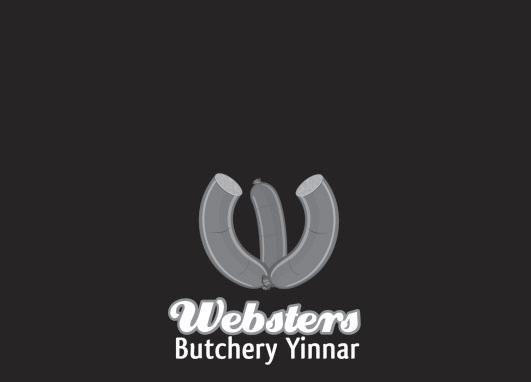
“Bushfires arenot just anatural disaster;they areaneconomiccatastrophe
for our community.The government’s draft strategy has largely overlooked the agricultural sector’s unique vulnerabilities and challenges. In fact, agricultureisbarely mentioned in the document.”

Ms Germanosaidthe impactofbushfirelingered long after theflames were extinguished.
“Devastatedfarmland can pushfood prices higher and the mental health burden on farmers cannot beoverstated. In this time of increased cost of living and huge mental health burdens on people, we need to do better,” she said.
“Failuretounderstand the consequences of bushfires on farmbusinesses means fire agencies areless equipped to help protect farmers and their livelihoods,which results in prolonged and costly recovery in the aftermath of afire.”
Ms Germano said after acouple of relatively benign fireseasons, the next big one was around the corner

“The CFAisalready warning of an early start to the bushfireseason, so it’s critical thatgovernment is doingeverything it can to prepare,” she said.












In its submissiontothe draft strategy, the VFF calledonthe government to create adedicatedchapter to cover impacts on agriculturewith criteria on:
Data tools, systems and knowledge of the impacts fires have on agriculture and other primary industries and different commodities within agriculture;
Integrating research and knowledge of intensity of fires on different agricultural production systems into models, and;


Improving monitoring, evaluation and reporting of risk reduction and fire management activities on agricultural production.
“TheVFF calls uponthe Victorian Government to urgently revise the draft
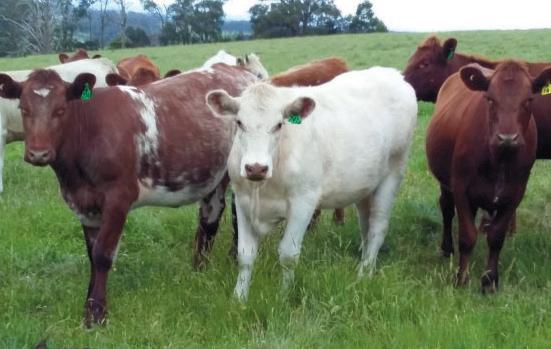






BushfireManagement Strategy to include a comprehensive section that acknowledges the specific challenges faced by the agricultureindustry.”
“Only by acknowledging these challenges can government properly plan for and respond to bushfires and their enormous impact on primary production,” Ms Germano said.

The BushfireManagement Strategy replacesthe 2015 policy, Safer Together: ANew Approach, to reducing the risk of bushfireinVictoria.
“The work we do over the next 10 years will help ensureVictoria’s people, land, environment and resources aremade as safe and resilientas possible for when bushfires inevitably occur,” the draft strategy says.
Continued Page 10
The Range Retirement Village is aretirement living community in Moe, boasting alive-in Manager and high-quality residential villas set inside a gated community.
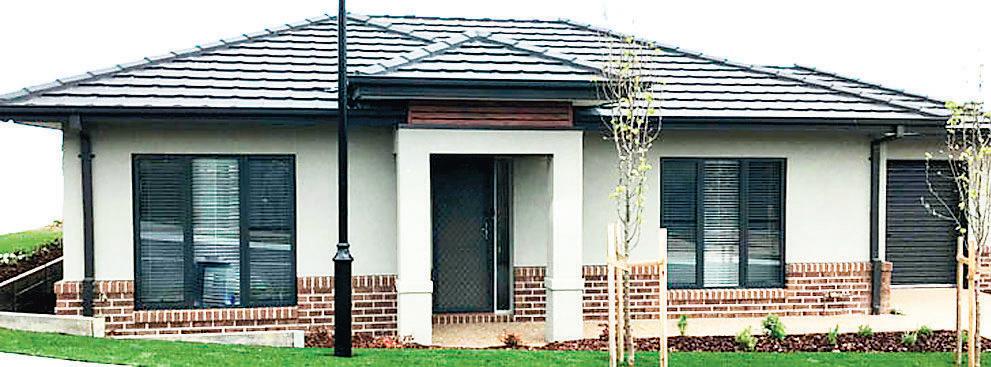

The Range offers elegant new and refurbishedtwo and three-bedroom independent living villas, set in attractive and well-manicured surrounds. Each villa features an open-plan living area, well-appointed kitchen, private courtyardgarden and single or double garage.





Youwill have the flexibility and freedom to embrace life with asocial calendar that includes, billiards, indoor bowls, craft, movie nights, trivia, bingo, cards and many moresocial activities and make use of our community bus to get around our local area.


MOTORISTS driving from Wellington Shire into East Gippsland can take apit stop at the redeveloped Newmerella rest area on the Princes Highway.
FederalMember for Gippsland Darren Chester said he secured funding from the previous government for the improvements to the stop near Orbost, and the redeveloped rest area will help save lives on the Princes Highway.
“The new sealing works and landscaping makes ita moreattractive place tostop and take abreak which is good forhelping to make surethat drivers arewell rested,” Mr Chester said.
“The road safety benefits of astrong network of rest areas on the highway are well understood, and it’s important to keep investing in better facilities.”
DAIRYAustralia will hold their annual meeting (AGM) on November 28.









The AGM will be held as part of afarmer forum in Moama, New SouthWales and will also be accessible online.

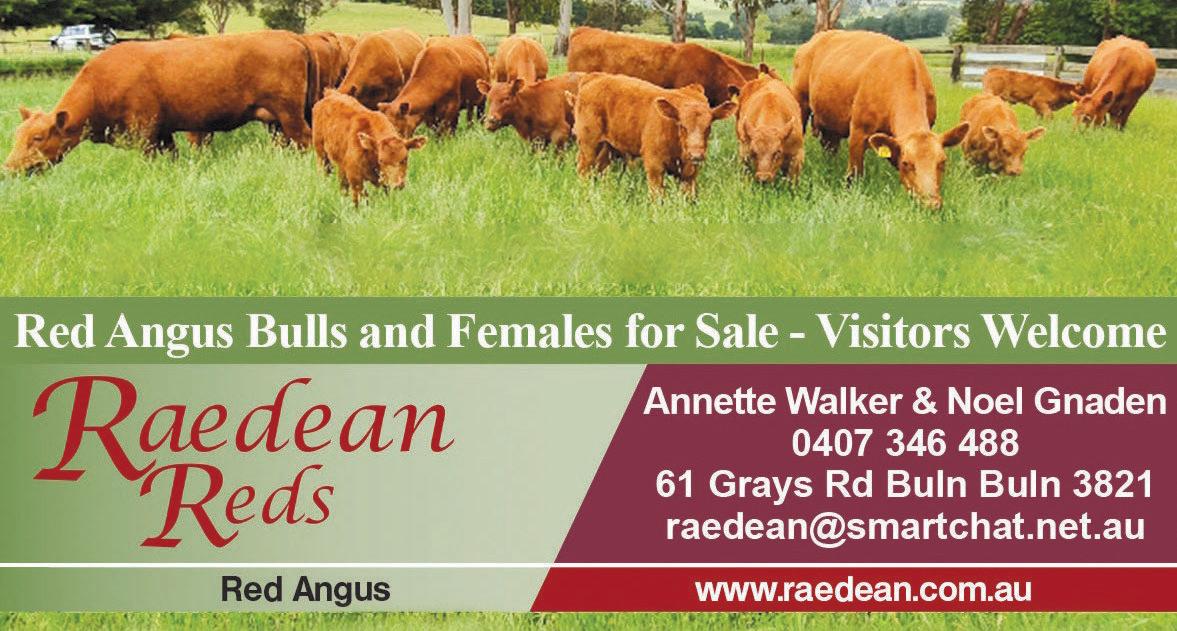


The forum and AGM will be interactive, providing the opportunity forfarmers to engage over lunch and dinner,hear from other farmersand industry leaderson feedbase and climate, and find out more about the value that Dairy Australia delivers to farmers.
Two of the four vacant positions arefor directors with milk producer skills, one is for adirector with agribusiness,innovation and adoption skills, and another for adirector withdairy supply chain and product promotion skills.
The terms of three directors -Roseanne Healy, Tania Luckin and Paul Roderickexpireatthe AGM.
Paul Roderick will stand for re-election, whileTania Luckin and Roseanne Healy will retirefromthe board. In addition, the term of Paulvan Heerwaarden, who was appointed to fill acasual vacancy in December 2022, also expires at the AGM.

Mr Roderick is standing for re-election.
Chair of Dairy Australia’s BoardSelection Committee (BSC), Tania Luckin said the boardhad reached arecommendation.
“Afteracomprehensive search and interview process, fourcandidatesare recommended by the BSC,” she said.


Paul Bennett (agribusiness,innovation and adoption skills), Paul van Heerwaarden (dairysupply chain and productpromotion skills), Karen Moroney (milk producer skills) and Paul Roderick (milk producer skills).”
Paul Bennett is from Tasmania and is chair of family-owned and awardwinning AshgroveCheese. He was previouslythe chair of DairyTas, is adairy and beef farmer and is involved in many community and youth organisations.
Paul van Heerwaarden’s family farming background led him to acareer path in agribusiness, including six years as chief executiveof Bega Cheese Ltd. He has served on anumber of company and joint ventureboards including for several years as amember director of Dairy Innovation Australia Ltd.
Karen Moroney is afarmer from Eskdale in north east Victoria and is aformer chair of Murray Dairy. She is also adirector of AgBiz Assist, arural financial counselling service and presidentofthe Mitta Valley LandcareGroup.

AppointedinNovember 2020, Paul Roderick has operated his family dairy farmatHarrisville, south east Queensland for the last 30 years. He was previously chair of Subtropical Dairy and had arole in setting up the Young Dairy Network in Queensland.

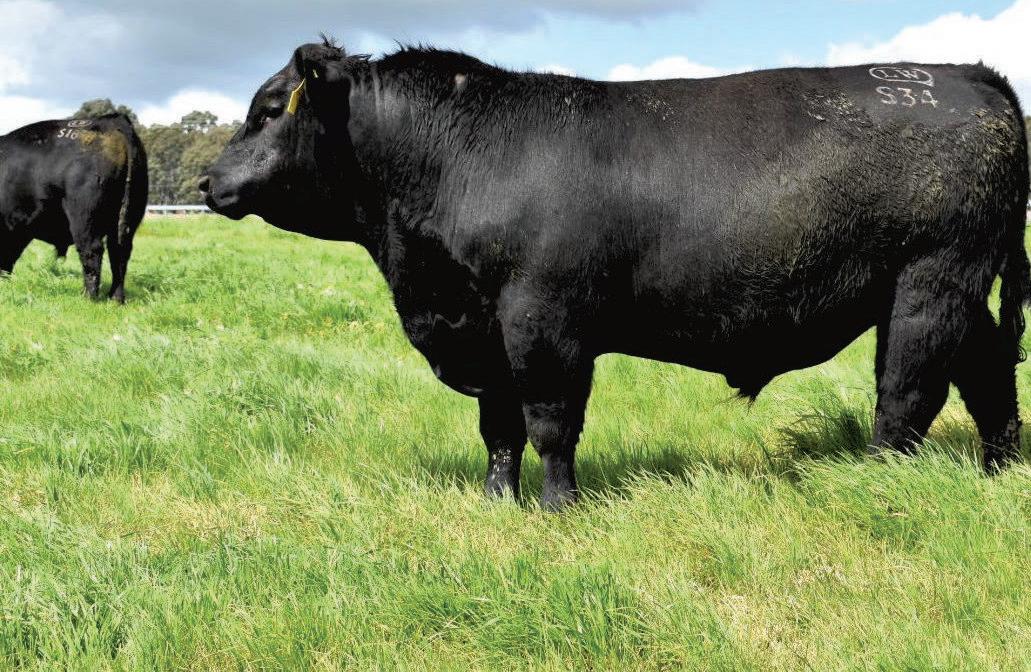
DairyAustralia members will vote for directorsatthe AGM or in advance by proxy.

To be successfully elected to the vacant director roles, eachnominee will requirea majority of the votes cast. All levy payers areeligible to become members of Dairy Australia and vote at general meetings.
Ahotline (1800 004 377) and email address (membership@dairyaustralia. com.au) has been set up for levy payers to become amember or check their details arecorrect.








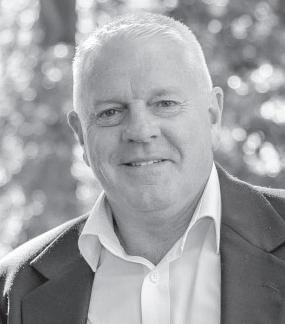
ONEofGippsland’s longest-serving cattlemen Peter John ‘Jack’ Pedersenborn in Sale Hospital August 12, 1932, died on August 2atthe same hospital.
He was 90-years-old and is survived by his wife of 68 years Doreen, eldest son Bryan and youngest Daniel.

His daughter Sharon died in April last year
Jack one of six children to Peter and Maisy spent his young years in Cobains, attending primary school thereand graduating to Sale Technical School.

He left Tech at the end of formtwo (Year 8), upon his father becoming ill, from which timehehelped tend the homepropertyon Somerton Park Estate.
Back to Jack’sgrandfather Mads, the Pedersen line is Gippsland-based, to Wuk Wukand Lindenow South, the gold-mining town of Grant and the Dargo High Plains.
Jack mustered cattle for the Treasures around Dargo and laboured for the Parkers, and reminisced of ‘Johnny’ cakes served up by the Chinese cook and mutton hung high in trees above the blowfly realm
When Jack discussed with his father Peter his career prospects at ayoung age, Peter reckoned he could ‘stay hereand shoot a few rabbits and grow afew pumpkins, or go and do another job’.
Jack’s was alife lived in concert with livestockand it would be atough choice forhim between horses and Herefords

Jack began workingfor the ClarkFairview Estate about 1953 at the 7000-plus-acre property ‘The Ridge’ at Rosedale.
And work he did, managing the property’s cattle and horses, therewas also weekend work showing cattle and breaking in young thoroughbreds for the racing fraternity.

At The Ridge,the 1964 complete dispersal
sale of the ‘Ridgeview HerefordStud’ fetched the Australian nationalaverage record price, sold by auctioneer Alf McGeoch.

The sale fetched almost 90,000 Guineas in total andwas big newsatStockand Land.
AML and Fmanager Mac Brain lauded Jack for the job he had done.
“Stud master John Pedersen did a remarkable job in getting the cattle ready,” he told Gippsland Farmer

By then he had showed cattle at the Royal Melbourne Show, was still managing racing thoroughbredsand kept thelarge property in order
In about 1965 Jack moved to ‘Fairview’ at Bundalaguah, whereDes Pennefather


was running Herefords, along with other properties at Newry.
Mostly irrigation country, it would take night and day weeks to water
In 1972, Jack and Doreen struck out on their own on 102 acres of irrigation country at Airly’s ‘Ormskirk’, aproperty that would be home for 44 years.
He was reassured by Horace Maxfield’s reckoning Ormskirk was the best bit of ground in Airly.
He regraded it and readieditfor an ordered, moremodernstyle of irrigation looking to wet every inch of ground.
Jack and Doreen then orchestrated acorrective breeding program of predominantly Friesian stock and milked cows for more than 20 years.
In 1992 when they sold the herditwas a localrecord, averaging morethan $1000 per cow with an $1800 top.
On ‘retirement’ Jack andDoreen started the BasfordHerefordStud, spanned nigh on 24 years,progressingfromhorned whiteface to predominantly homozygous polled, as the market demanded.

Aged in his mid-70s Jack went to TAFEto be trained in bovine artificial insemination, always looking to masternew developments in animal husbandry in which he saw worth.


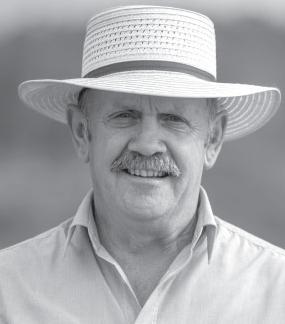
Jack and Doreen sold Ormskirk in 2016.

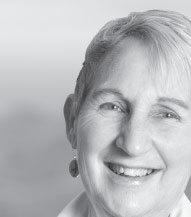

Bornthe in the year the Australian Broadcasting Commission begantransmitting radio signals and theSydney Harbour Bridge was opened, Jack reflected at his 90th birthday just how much change he had witnessed, and saidhethoughtthe improvement in people’s living standards was what stuck with him most.
He was buried on Monday, August 14 aftera graveside serviceat Stratford Cemetery.
THE state government announced on August 23 an expansion of financial support for timber workers as the end of native timber logging draws near
Minister for AgricultureGayle Tierney announced the expansion of the Victorian Forestry Worker Support Program -increasingworkertop-up payments from $120,000 to $150,000 and allocating extra payments to workers over 45-years-old.

The wider community forestry sectorincluding firewood sellers, guitar makers, seed collectors and other Forest Produce Licensees will be eligible for the expanded Worker Support Payments and redundant equipment compensation, plus payments for undersuppliedtimberand aone-off hardship payment.
“Afterlisteningtothe timber industry, we have expanded our support programensuring workerneeds aremet,” Ms Tierney said.
“I thank our industry stakeholders for engaging constructively to deliver meaningful support for timber communities.”
The firstround of the ForestryTransition Fundisnow open for impactedtimber communities.
The fund will provide grants of up to $1 million toexpand, diversify or start new businesses -whilealsoallocating wage subsidiesto incentivise people to employ transitioning timber workers.
The Sawmill Voluntary Transition Package is also now opento support millowners to stay in the industry or switch to new sectors.
Thesepackages aim to ensureworker’s entitlements aremet and include plant and equipment compensation.
An initial Harvest and Haulage Support Packagewill be availablefor forest contractors in September,including contract and equipment compensation and worker redundancy payments.
Harvest and haulage subcontractors,chip truck drivers and otherbusinessesthat areheavily dependent on the native timber industry will also be eligible for the next round of the Timber Innovation Grantsexpected to reopen in late September
“The additional payments for workers in the laterstagesoftheir careers will make a big difference to timber families,” Member for EasternVictoria TomMcIntosh said.
Felicia Stevenson, president of the Heyfield TimberFestival Committee, told the Gippsland Farmer she felt as if Heyfield was “left to rot.”
“As farasI’m concerned, thereare alot (of) things that the Andrews government say, but we areyet to see, and I’m not holding out much hope that the money will get to the people/towns who really needitand deserve it,” Ms Stevenson said.
“Gayle Tierney MP and Andrews should come to the 11 towns and talk to the people that aresuffering; whereisthe science

behind shuttingour most sustainable renewable industry down?”
Ms Stevenson also expressed disappointment that other organisations weren’t doing enough to fight for the industry.
“No ads in papers supporting the industry. Not one commercial on the TV,” she said.
“Weneed people to get involved, more people getting their stories out there.”
Member for Gippsland East, TimBull, said in response to the announcement that the timber industry needed moredetail and support.
“This is astep in the right direction, but what Ihave been calling for is the government to give clear timelines for when the supports will be received and to set up an in-person presence in these timber towns whereimpacted persons can go and have aface-to-face chat and get some answers,” Mr Bull said.
“There remainsnomentionofeither of these matters addressed.
“My main focus has been on getting the Governmenttoact on these mattersand ensure‘downthe line’ businesses and workers notdirectlyemployed by the mills or holding VicForests’ contracts arelooked after
“I am pleased thereappears to be provision for this.
“The announcement today indicates there willbesupport paymentsfor the likes of firewood sellers, seed collectors and other forest-reliant workers; however,itstill does not address what the government is going to do to address the firewood shortage that it created with the ban.
“Harvest and haulage sub-contractors, chip truck drivers and other businesses heavily dependent on the native timber industry will also be eligible for supports, but they need timeframesand amounts
as many arereally up against it with mortgages to pay.”
Minister for Regional Development
Harriet Shing said the government was also investing in job creation, training, and local development.
“After manymonths of uncertainty due to ongoing litigation, this funding and support is already helping Victorian timber towns, workers, andbusinesses tomake the decisions that areright for them,” Ms Shing said.
The Victorian Forest Products Association (VFPA)chief executiveDeb Kerrsaidthe transition package in principle is welcomed but was disappointed that it benefits some and punishes others.
“As details about the exit package come to light, it’s evident that our mills arebeing punished twice,” Ms Kerr explained.
“They have investedtens of millions of dollarsinnew manufacturing facilities to seethem through toand beyond the originallyannounced 2030 deadline -a deadline that the government has reiterated numerous times sincethe original 2019 announcement.”

Ms Kerr also noted the futureofforest produce licences was unclear
“While we welcome the additional support for workers, contractors,communities, and new regional businesses, it is hardto fathomhow the government has treated native hardwood mills who had acted in good faith,” she said.
“This is not how agovernment acts that wantstopromote Victoria as aprime location forbusiness. As the main body advocating for wood and wood fibrebusinessesinVictoria, we will continue to fight for better outcomes for our industry.”
Australia’s timber workers’ union, CFMEU Manufacturing, welcomed the increased compensation package for timber workers who lost their jobs as aresult of the upcoming closureand credited their campaign for the changes.
“It is only by workerssticking together and fighting that we have achieved this result,” saidCFMEUManufacturing Assistant National Secretary Leo Skourdoumbis.
“This change to the compensation package represents asignificant improvement, as well as recognition of the challenges for older workers in finding re-employment,” he said.
The government said it willcontinue to consult with forest contractorstoensure their critical skills areretained for ongoing management of the state’s public land, withgenuineopt-outpackages available for those who choose to exit.
For moreinformation on how to get local support, visit vic.gov.au/forestry or contact the Forestry Transition Hotline on 1800 318 182.
To register forthe Victorian Forestry Worker Support Program, visit forestworks. com.au

Our company has advertised with the Gippsland Farmer for several years, and it has been an excellent decision with proven, successful results.











The team at the Gippsland Farmer areexcellent to work with and always offera friendly and professional attitude when it comes to all dealings. We will continuetoadvertise with the Gippsland Farmer formany yearstocome.


 Taylah Poole Clark Equipment
Taylah Poole Clark Equipment

ROTARYClub of Maffra Mardi Gras is all set to take place in 2024. Followingthe success of this year’s event, the committee is working hardtomake sureithappens again next year on Saturday, March 16.
The theme is ‘OUTER SPACE!’ Get your thinking caps on about the amazing floats you can make up, with planets and stars, astronauts, rockets,flying saucers and aliens, to name afew.
Mardi Gras literally means ‘Fat Tuesday’.
It was amedieval festival beforeLent,when people ate fatty foods to give them strength throughout their 40 daysoffasting. It developed into acarnival, with costumes and floats, and is still popular in Europe.
The Maffra Mardi Grasisthe longest running event in Wellington Shire. It started in 1957 when agroup of Maffra businessmen wanted to raise money for the Maffra Hospital. That first year,they had ‘penny votes’. The winner was the person who received the most votes,and therefore the most pennies, with all proceeds going to the hospital. This was so successful that it was decided to continue the fundraiser the following year as the Maffra Mardi Gras.
One purpose of the Mardi Gras is to provide an opportunity for community groups throughout Wellington Shiretoraise funds for their organisations.
Entrants have asix-weekwindow immediately preceding March16inwhich to run their fund-raising activities. Asmall percentage of those funds goestothe Rotary Club of Maffra to further their work in the local community.

In the past, tens of thousands of dollars have been raised for community projects throughout the shire, with over $4 million raised overall. Last year part of the Mardi Gras funds was used to buy afreezer for the Maffra Neighbourhood House.


Thesecond purposeofthe Mardi Gras is to provide the Wellington Shirecommunity with afamily-friendly event.
Thereisa street parade with marching bands and floats, street and food stalls, Kids’ Corner,entertainmentand alot of fun!

Dress-upsinline with the theme are encouraged and vouchers will be handed out to the best costumes. Have fun with ‘OUTER SPACE’ as the next theme!
“The committee is now open to entries


from any organisations that would like to be involved in order to raise funds for their projects,”MaffraMardi Gras Committee Member,ClaireCochrane said.
Ms Cochrane said entrants will receive alot of support with their fundraising, as well as publicity for their organisation. They will also receive asash and flowers at the presentation on the day.
“Thereisnoage limit, and men arewelcome as well as women. The organisation must have its own public liability insurance,” she added.










“Being aFundraising Entrant can be as much or as little work as you want to put into it and can be alot of fun!”
Entry forms available from melissamafframardigras@gmail.com
Applications from stallholders arealso welcomenow, especially food and coffee stalls. The northern service lane in Johnson St, Maffra will have space for stalls to set up with parking on the grass verge. Please consider astall with games, such as fishing games with magnets, spinning wheel games, etc.
For application formscontact kath@ wideband.net.au

Expressionsof interest from anyone wishing to enter afloat can also be sent in, withentry formsnearlyreadytogo. Any community organisation that has its own publicliability insurance can enter afloat. The Best Community Float, Best Overall Float and Best Business Float will all receive trophies. For moreinformation, emailmaffrasecretary@rotary0920.org.au




ATRANSPORTcompany will front court in Sale after aworker fell from agrain truck at a Maffra depot in January 2022, and later dying from his injuries in hospital.

According to WorkSafe Victoria, the 60-yearold man suffered head injuries and later died after falling about four metres when aguard rail failed while he was inspecting hatches on top of the truck.
WorkSafechargedD&AMartin Transport Pty Ltd with asingle charge under section 21(1) of the Occupational Health and Safety Act for failing to provide and maintain asafe working environment.
It is alleged thecompanybreached section 21(2)(a) of the OHS Act by failing to implement aqualified inspection and maintenance regime for the guardrailsand failing toensurethey wererepaired or replaced when faulty. The matter is listedfor afiling hearingatSale Magistrates’ Court on September 12 2023.
From Page 1
KEY points in the state government’s draft new bushfiremanagement strategy include:
Empower people and communities to manage bushfirerisk, response and recovery moreeffectively in their local area;
Improve early warning information and advice on how to respond to bushfire emergencies;
Deliver afuel management program across public and private land that addresses the challenges associated with a changing climate;

Continuously work to contain fires early, limiting their impact on people, communities, industry, the environment and cultural values;
Adapt and reduce the influence of climate change on bushfirerisk requires astrong and continuously improving foundation of knowledge, evidence and tools;
Develop enhanced systems, processes, tools and programs to improve training and support to all staff;
Continuously improve data, tools, systems and knowledge of the impact of fireregimes on ecosystem resilience and the environment;
Providing traditional owners with access and authority to manage Country using cultural land management tools, including cultural fire. This involves traditional owners to lead the planning and to undertake cultural burns across all land tenures and Country types according to their cultural obligations, and;
Improve management of state forest reserves and private land through collaborative management to heal Country and build resilience.
TWO years in the making is finally coming to fruition at the Hillside Dairies in Tinamba, with production and efficiency now maximised on the dairy farm.
Situated on a300-hectareproperty, the farmholds 1150 pasture-based cows, so work is always needing to be done in every part of the production line.
Over the past two years, Hillside Dairies have been in the process of planning, fitting and preparing16DeLaval Robotic Milking Machines.
The additionofthese machines gives Hillside Dairies the titleofthe biggest DeLaval milking productioninthe SouthernHemisphere.
So what is so special about the DeLaval Robotic Milking Machines?
These machineseasethe dutiesof employees of the farmbydoingthe brunt of the work as an automated system.
On top of this, they areabletolook after the cows, stopping the spread of infections andalerting staffto be able to help as soon as possible if something goes wrong
So how does the system operate?
The system works in a number of different ways, but everything begins at the drafting gates.
Each cow has an ear tag, which allows the system to identify the cow, knowing what she needs and whereshe needs to go.
DeLaval districtsalesmanager,Jim Hare, has worked with HillsideDairies throughout the process.
“They’reall drafting gates …itsplits 12 ways, acow can go one of 12 different ways,basedonwhat it’s requirements are,” Mr Hareexplained.
Hillside Dairies owner,AlisterClyne, believes the system gives the farmbetter flow,24hours aday, seven days aweek.
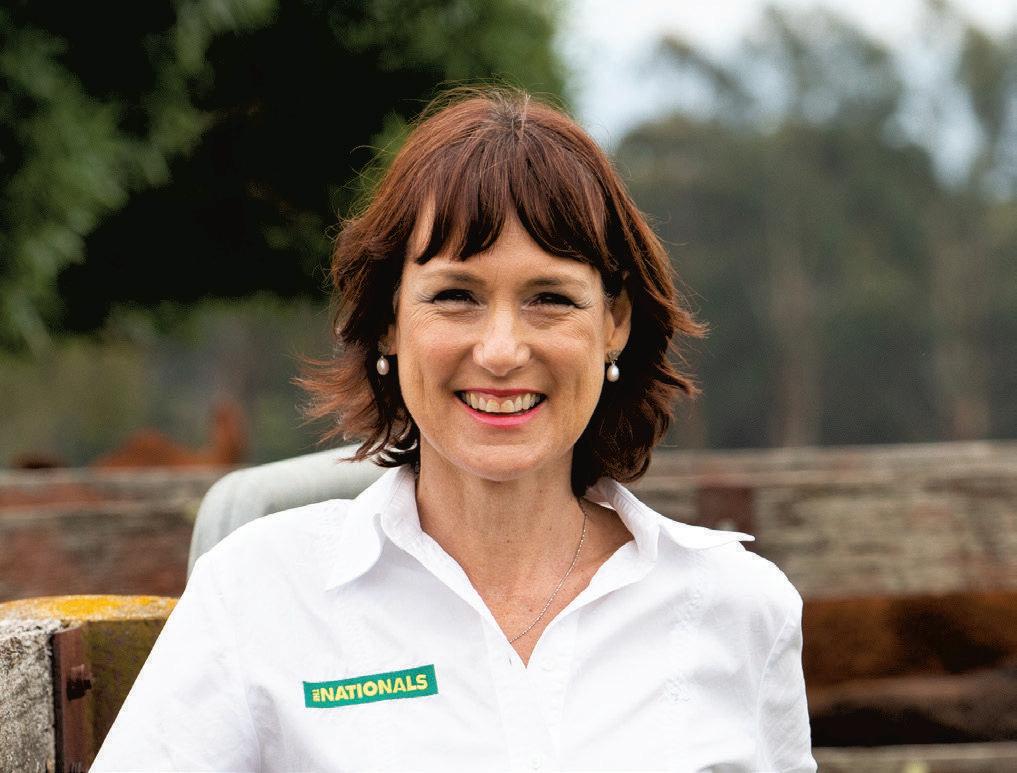
“You mighthaveacow you wantto catch, that’s unwell;it’ll pull her out into aspecial needs area, and she’ll stay there until you see her,” Mr Clyne said.
“Ifyou chop it (the grazing paddocks) up intosmaller portions, then allocate the herdtohave access to those portions moreoften …then you’regoing to have better flow through the shed.”
On the300-hectare property sit 100 paddocks, each of which is three hectares.

“There’s lots of options,the cows always get turned out onto goodfood, good pasture,” Mr Haresaid.
The drafting system is completely voluntary for the cows, which stands well from an animal welfareperspective, as does the automated system.
“From an animalwelfareperspective, these things arenext level,” Mr Hare added.
If a cow is ready to be milked, they will be escorted through the drafting gates and will be able to filter themselves into the DeLaval Robotic Milking Machines.
From here a two to three-minute process is underway, with no hands required on deck.
Arobotic arm, using camerasand sensorspicks up tools,begins by cleaning the teat, one-by-one, all while stimulating the teat ready for milking.
Following this process, the robotic arm picks up the four milking cups one-byone, connecting to the teat to begin the milking process.
Usually, when milking using afour-teat milking system, the process will stop when ateat finishesmilking,but this way around,itmaximises the amount of milk from each quarter
Each cow is identified to have adifferent milking averages, and the system registers when cows should be ready to finish; thus if any abnormalitiesarise, the farmers will be able to recognise these.
“It knows how much she should give in each quarter,and if it’s out of whack and she’s not giving themilk, it’ll tellyou,” Mr Clyne said.
“They could come in at any time of the day, or night.”
“The efficiency that these things work at is so much better for the cow,” Mr Hareadded.
“The computer determines when the milk flow is nearly finished… andit’ll take that cup off.
“The other three might still be on for awhile, until they areall finished. In conventionaldairy,they(thecups) all come offtogether.”
Once milking is complete, the robotic armthen disinfects the teat, keeping cows clear from disease, as well as cleaning its own equipment in order to stop the spread, if acase breaks.
“A conventionaldairy probably uses 30-40 millilitres of teat spray for each cow, this will use 7.5(mL),” Mr Hare explained
“You save alot on consumables.”
Following the milking process, cows arethen escorted to the feeding station, which is another impressive addition to the farm.
Hillside Diaries have 24 Hanskamp feedings stations located nexttothe
milking machines -the most stations in the worldonone farm, the previous highest being 12.
Another smart piece of technology, the feeding stations register the cow via the ear tag, dispensing certain food depending on the cow’s needs.
“It’lltellus everything we need toknow about it (the cow) …itwill tell us depending on its stage of lactation, or whatever it may be, how much it should be fed,” Mr Haresaid.


“Each one of those has three feed heads with separate grains that go through, it could be aprotein, an energy, minerals, or it could be awheat or something like that.
“Depending on the cow, what its needs are, stage of its milking, stage of its life, stage of its lactation …that will dispense individually to each cow.
“That (the feeder) is what brings cows to the shed, the stuffthat goes through thereisthe most favouritefood you’ve ever eaten to acow.”
With morethan 4000 dairy farms in Australia, just two per cent of them use robotics.
One big plus for the robotics route, is the fact that it relieves manual stresses from employees, allowing them to work on other important jobs on the farm.
“That’s the biggest part of going this way, there’s benefits for the cows and all thatsort of thing, butreasonyou do it is so that you reduce the labour requirement,” Mr Clyne said.
“They spend their time moreproductively doing other jobs on the farm, and this dairy labour intensive component of their day-to-day operation is taken over by these machines,” Mr Hareadded.
“As an industry, we’retrying to generate attraction towards thistype of milking of cows.”
This route increases the chances for a better returnon investment for Mr Clyne and Hillside Dairies, as farmers can be more productivewith half of the amount ofmilking labour required, all while the automated system runs 24/7.
Thanks to the DeLaval systems in place, each milking machine will milk 75 cows aday, which equates to 1200 aday with all 16 machines in operation, morethan what is needed.
With 24/7 operation, around130 cows can be milked hourly, rather than filtering through all 1150 in asix-hour span, relieving stress on employees.
The set-up is described as unique, with extensiveplanningrequired from the getgo to ensurethat the shed would be in a position to maximise production.
“It’s avery unique situation this, and the scale of it also makes it unique, because with 16 boxes, it’s alot,” Mr Haresaid.
“This shed, as good as these things are, you can’t milk the cows if they’renot here, so cow flow and cow traffic is imperative for this to be able to work.”

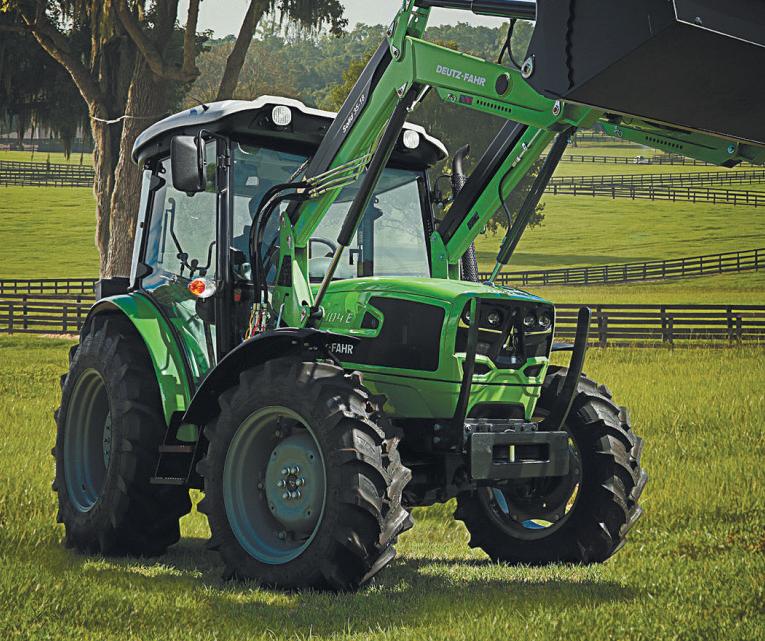






MAFFRA Unit of the Victoria State Emergency Service(VICSES)recently conducted its annual snow weekend (August 12-13) in the Snowy Plains area north of Licola.
Unfortunately therewas limited snow for theweekend, however varying weather conditions still challenged the participants in this remote area. This annual training weekendisused for skills maintenance for those qualifiedinAlpine Searchand Survival, as well as an introductory weekend for those considering obtaining this qualification.
This year,10members of the Maffra Unit of the State Emergency Servicewerejoined by three members from the Leongatha Unit, as well as Operations Officer Andrew Plant and Lead Trainer Dan Walton. Two members from Victoria Police Search and Rescue Squad also attended,sharing their

vast knowledge with the participants.
The weekend heavily focused on refreshing navigation skills. On Saturday, participants navigated through thick bush landusing compass bearings, while on Sunday navigation was performed using the GPS.
Ascenario consisting of aline search through thick bush to locate a lost person was also conducted. After locating the person, the scenario progressed to the first aid managementofa hypothermicand injured person,aswell as the complexities of extricating the person several hundred metres to the vehicles.
VICSES MaffraUnitmeets onthe first and thirdWednesdays of each month and welcomes new members. If you are interested please contact Unit Controller Darryn Jones on 0407 472 939.

GIPPSLAND Primary Health Network (PHN) and Federation University Australia are workingtoprovidea pipeline ofallied health workersfor the Gippslandregion to help address acute shortages in the sector

As part of a$500,000 commitment, Gippsland PHN will provide scholarships to three new Federation University students ayear for 12 years, supporting them to succeed in their studies without the stress of financial pressure.
Starting in 2024, the scholarships will support eligibleGippsland occupational therapy, physiotherapy and speech pathologystudents for theduration of their four-year programs, enabling them to receive funding for the entiredegree.
Thisinitiativewillultimately support 36 students to cover costs like textbooks, travel, groceries and computers.

Gippsland PHNactingchief executive, AngelaJacob, saidthe scholarship program would help disadvantaged students from Gippsland secondaryschools who may not consider tertiary study in health.
“It will also support the pipeline of local health professionals inorder to address ongoing workforce issues,” she said.
“We know that young people who study in Gippsland are more likely to remain in Gippsland.”


According to the 2019 Gippsland’sFuture Health and Community Services Workforce report commissioned by the Latrobe Valley Authority, the number of physiotherapists in Gippsland is projected to grow from 167 in 2016 to 237 by 2036; occupational therapists would grow from 150 in 2016 to 212 in 2036;and speech pathologists and audiologists would grow from 79 in 2016 to 113 in 2036.
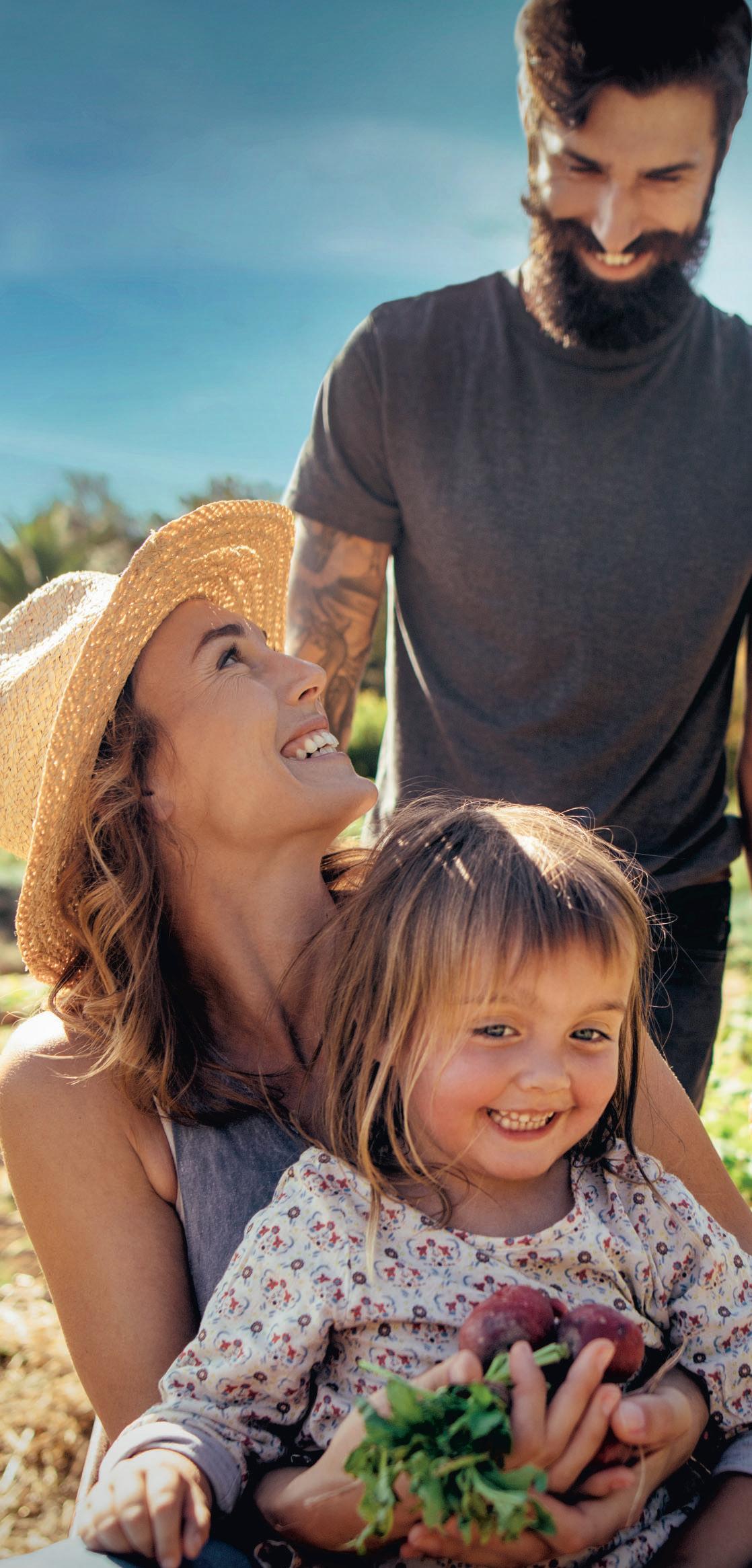
Federation University launched its Gippsland allied health programs to help tackle local workforceshortages,beginning with Occupational Therapy in 2020, followed by Physiotherapy in 2021 and Speech Pathology in 2022.
At Federation’sstate-of-the-art Allied Health and Activity Centre, students learn in modernteaching spaces with the latest technology designed to simulate clinical settings.
For moreinformation on the Gippsland PHN scholarships, visit federation.edu. au/connect/foundation/scholarships/ gph-scholarships






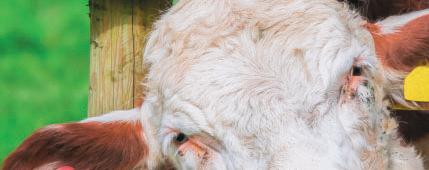






MEAT &Livestock Australia has launched anew program called Carbon EDGE for Australian redmeat producers. This is in addition to the industry's well-known EDGE network training program including Business EDGE, Breeding EDGE, Nutrition EDGE and Grazing Land Management EDGE.
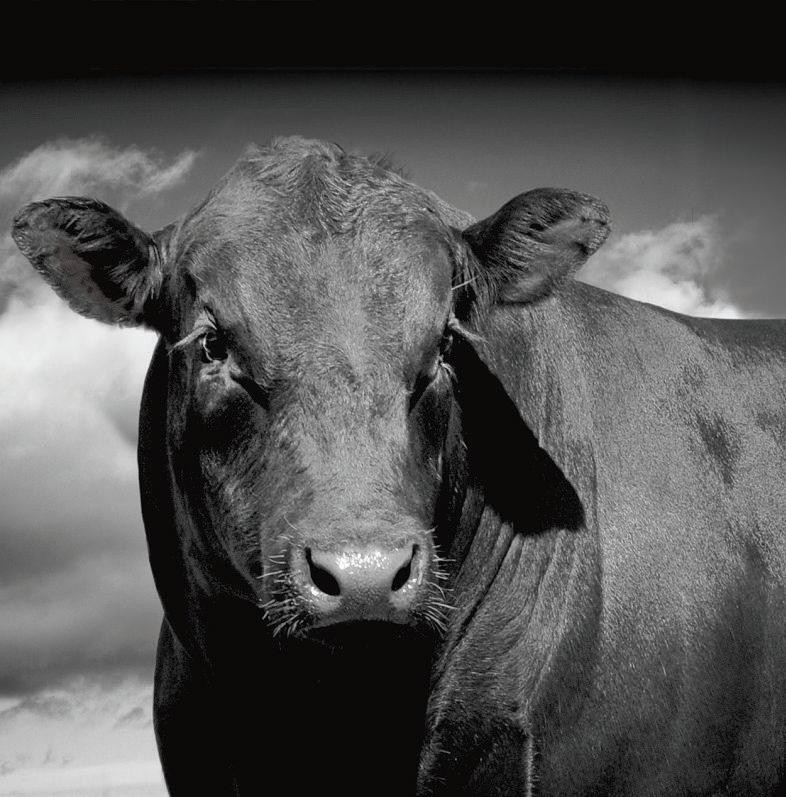


The redmeat industry says its target to achieve carbon neutrality by 2030 (CN30) will only be realised with the adoption of emissions avoidance and carbon storage practices and technologies. Although thereiswide interest in these practices and technologies, producers have indicated that they are looking for moreinformation to make sense of the options available to them and how these could be applied within their businesses.
According to MLA’s program manager for adoption, Sally Leigo, the development of aCarbon EDGE training package will address the knowledge and skill gap.
Carbon EDGE will run over two days and will provide independent, research and fact-based information.
It has been developed by aworking group of producers, advisers, and technical experts from across Australia.





The program is for grass-fed beef, sheep and goat producers who are looking to build on their understanding of carbon. The program will help participants develop their understanding of carbon and move into aplanning and action phase, identifying practices and technologies that could be incorporated into their business to benefit their bottom line and the environment.
It is also suitable for advisers and other service providers looking to enhance their understanding of the current operating environment.
Five pilot workshops for Carbon EDGE areplanned to take place, with the first last month (August) beforeafull roll out of the program in 2024. The pilot workshops will be held in Central Victoria, WesternNew South Wales, Central Queensland, SouthernWestern Australia and the fifth location will be later confirmed.


Register an expression of interest to participate in the Carbon EDGE pilot workshops. Availability for pilot workshops will be limited.
Find out moreatCarbonEDGE


Grazing tolerant lucernes,often overshadowed by more conventional pasturesand crops, aredemonstrating their remarkableability to adapt, thrive and offerflexibility in conditions that challenge traditionalfarming practicesin Gippsland.
Lucerne, typically cultivated in areas marked by limitedsummer moistureand poor soil moistureretention, haslong been alifelinefor regions struggling to support consistent pasturegrowth
Withanimpressive yield of up to five cuts per year, it’s asteadfast source of nourishment.
Withlow crowns anda focus on maintaining high-quality forage, newer grazing tolerantlucernesresist becoming coarse and stemmy over time compared to oldertypes
Drawing strengthfromtheir capacityto utilisestoredenergy reserves, newer varieties of lucerne exhibit aremarkable resilienceinthe face of drought
They tapintotheir carbohydrate resources to rejuvenate and regrow after grazing, exemplifying nature’s ingenious survival strategies
Theirflexibility allows them to serve as adependable resourcewhenother pastureswane, providing sustenance to lambs and cattle during lean periods
As acrop, their potentialisboundless, offeringmultipleharvests andmultiplying thereturns on investment.

Adam Fisher from Notman Pasture Seeds says, “newerlucernes’ trialled and testedover multiple environments
andconditionsshowed significant step up in grazing tolerance andpersistence compared to oldervarieties”.
Notman PastureSeedsemphasised that thefoundational stepstofully harnessing thepotential of lucerne liewithin the
establishment phase, encompassing the followingpivotal concepts:
■ Choosing alocation with minimal waterlogging, avoidingareas prone to frost pockets or excessive wetness.
■ Creatinga fine, well-tillered seedbed Lightly compact the soiltoensuregood seed-to-soil contact.
Sowing depth needs to be managed as lucerne is asmallseedand therefore onlyneedstobesownatnomorethan 15mm deep.
■ Using inoculated seedtoenhance nitrogen fixation and promote vigorous growth.

■ Keepthe seedbed free of weeds duringthe establishment phase, as weeds compete forresources and can hinderlucerne growth
■ Choose ahigh-qualitylucerne varietythatsuits your farmsgoals,with newer typesoffering improved traits likegrazingtoleranceand disease resistance.
Establishing lucernedemands patience and carefulattentiontodetail,but the rewards are well worth the effort. With these keys in hand, youcan set thestagefor athriving, enduring lucerne standthat contributes to grazing performance, crop production,orboth


Poor growthinyoungcalves strongly impacts subsequentmilkproduction. As such, even during abusy calving period, calves shouldnot be forgotten. Thereare four crucial areas to look at whenrearing healthy heifers:
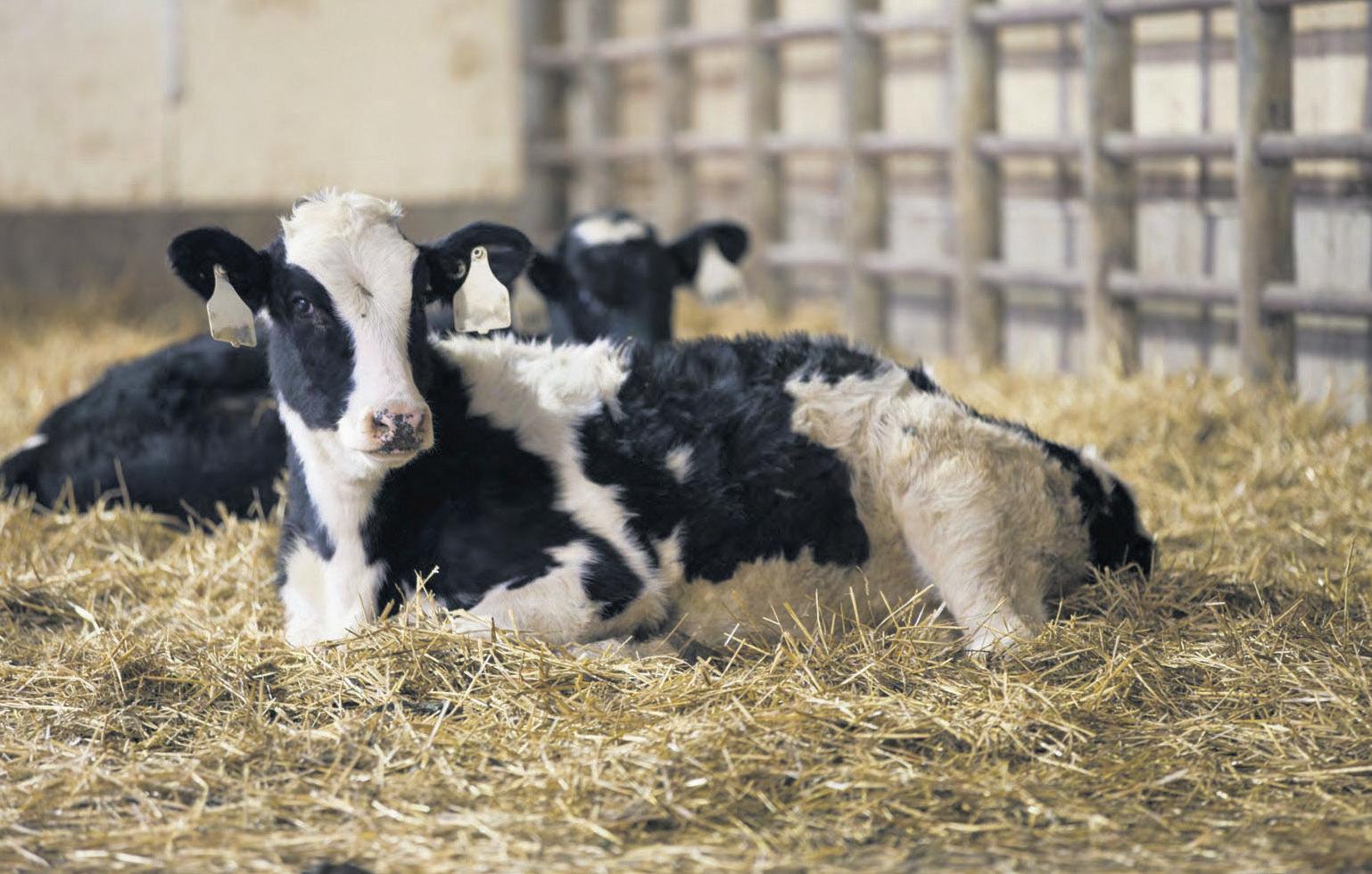
■ Colostrum
■ Early nutrition
■ Rumen development
■ Environment
Colostrumisthe first source of nutrients, vitamins andantibodies(immunoglobulins) the calf will ingest.
The colostrumimmunoglobulins protect the calf against pathogensand disease during the criticaltime when theyoung ruminant’s ownimmunesystemis evolving
The ability to absorbcolostrum is at its highest in thefirsthourafterbirth,after which,itbegins to decline andcontinues to do so through the calf’s first24hours
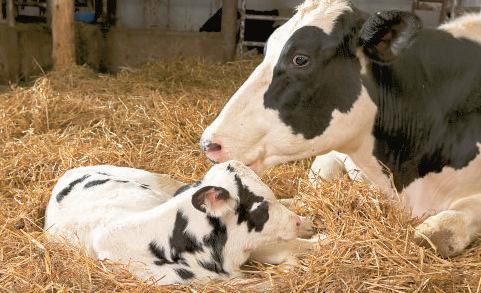
Arule of thumb is to feed 10 percent of body weight (i.e., 3-4 litres) of good-quality colostrum withinthe firsttwo hours, as adelay in the firstfeeding willreduce the absorption rate —and afailuretoabsorb enough immunoglobulins from colostrum leaves acalfsusceptible to disease.
Asecond feed shouldbegiven eight
hours later, beforetransitioningtomilkor calf milk replacer
Early nutritionisimportant for the preruminant calf to successfully transform into aruminating, high-producing cow as well as forproviding thecalfwith the energy and nutrientsits immunesystem needs in ordertodevelop.
Thegoldenruleistodoublebirth weight beforeweaning (at8-10 weeks), and this is best done during the fewmonths when feedefficiency is at itsgreatest. Therefore, a40-kilogram calfshould gain 0.6kilograms perday
To achieve this, aim to feed 15 percent of body weight (i.e., 6litresfor a40-kilogramanimal)
Keepinmindthat, at this stage, the calf abomasum is not large enoughtodeal with6litres of milk at once. Calves require around325 grams of milk solids for maintenance
Milkpowder contains12.5percentDM, which translatesto2.6 litres.
Calvesweighing40kilogramsbeing fed four litres per day (i.e. 10 percentoftheir bodyweight) can achieve 200 grams of growth per day
However, calves weighing more than 40 kilogramswillstruggletomaintain on this level
Milk replacer has alower fatand energy content than wholemilk, andassuch,a higher rate is necessary.
Therumen needs to be fully functioning to successfully performlater in life. Thedevelopment of the rumen is aided by the starchcontent in concentrate feeds, which shouldbemade available within2–3 weeks of birth.
To strengthenthe rumenwall, calves should have accesstostraw
However,avoid feeding adiet with a high hay content; thereisagreater risk of overeating hay, which can lead to pot belly—thatis, filling therumen withhay that cannot be properly digested. Thiscan lower concentrate intake.
After birth,a calf should be driedoff as quicklyaspossible and placedina clean,dry,draught-free environment
Cleaning all feedingequipmentisnecessary formaintaining healthyanimals,and prioritisingyoungeranimals first, along withrinsing beforefeeding the other batches, willhelp mitigate the spread of disease
Clean,fresh water should always be available, as consumedmilkgoesinto the abomasum, leaving no liquid in the rumen to digest the concentrates. Changeswithingroupsshould be kept to aminimum, and calves of similar sizes or ages should be kept together
Alongwithgood managementpractices, you can build ahealthy herdwith a strong rumen and robustimmunity by focusingon:
■ Colostrum —quality andquantity are both important, andthereisonly one chance to getitright.
■ Early nutrition —monitorbody condition andweight gainduringthis periodtoensurethatfeedismeeting thecalves’ needs
■ Rumen development —use starch andfibretogrowa healthyrumen.
■ Environment —keep theirliving quarters clean, dryand stress-free. Speak to your local Alltech Lienert representative formoreinformation on ourrange of solutions for calf health and biosecurity
Zaida GLIBANOVIC
‘WE got lots of milk hereinthe country,’ the Wiggles said in their iconic song Calling All Cows.
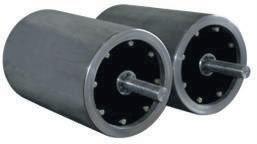

Lowanna Collegestudentsare learning just how much milk there is in Gippsland as they undergo the Cows Create Careers program.
Lowanna isamong the schoolsin Gipplsand region who participateinthe hands on learning experience.

In the project, for four weeks students will rear andcarefor twothree-week oldcalves

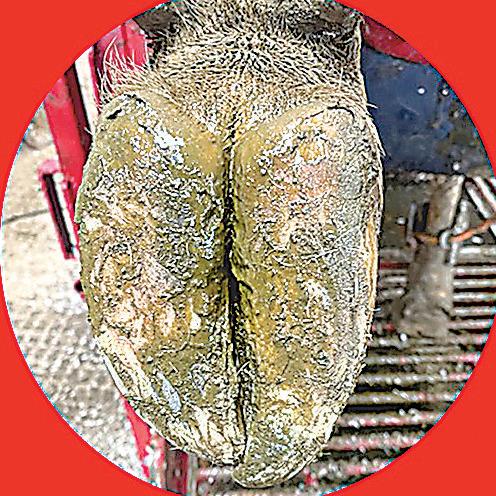
Alocal dairy farmer will teach the students how to carefor the calves and demonstrate skills such as animal husbandry, feeding and weighing.
An Industry advocate has also visited the students to speak about their career in the dairy industry.
Judith Stewart the agricultureand horticultureteacheratLowanna College saidshe hadalready seen herstudents benefit from the program.
“The purpose of the program is to teach them how to be responsible and ethical in their treatment of animals,” she said



“One of the things that I’ve noticed in the program is they start offnormal students and then their level of responsibility just lifts and lifts and lifts, Ithink its amazing.”
With two feeding times aday, the students at Lowanna College have their hands full.
The students in theagriculture class are all rostered on to complete daily tasks involved with raising the calves.
“I notify themthe night beforesothey remeber that theyhave to feed the cows the next day, then they have to come into school at 8.30inthe morning which is beforeschool hours,” Ms Stewart said.

“I thinkits agood thing that students realise that milk doesn’t come from the super market.”
Ms Stewart explained that thereismany jobs available for students in agriculture in our region and that this program offers alook into the industry.

Lowanna College’s Year 10 student Noah Parkinson said he enjoyslooking after the calves but he didn’t expect the calves to be so lively.
“I think it would be acareer path that I could look into,” he said.
John Hutchison, Jaydee Events director, said the innovative project highlights the diversity of skillsand professional careers within Australia’s vibrant dairy industry.
“Cows Create Careers allows students to engage with the dairy industry in afun and hands-on way-all while highlighting the range of university, vocational and professional pathways within the industry,” he said.
Eachschoolis provided withdairy industry curriculum for Year 7-11, at no cost, and students formteams to complete industry-based assessments.
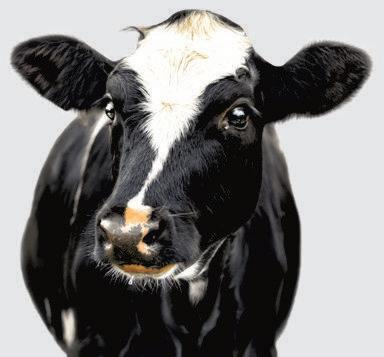
Cows Create Careers was originally established in 2004 with dairy farmers from the Strzelecki Lions Club in Victoria across nine Gippsland schools.

The project has since been supported by industry, regional development programs, dairy farmers and sponsors.
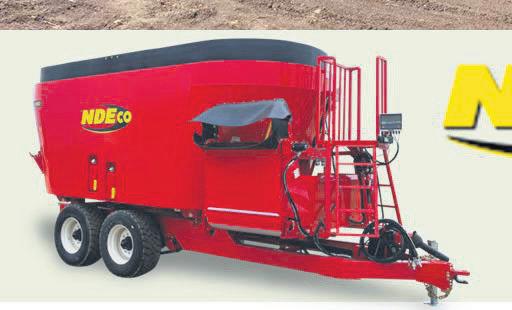




It has now grown to over 217 schools across Australiawith morethan11,680 students completing the project in 2022.
“While Cows Create Careers increases student awareness of the dairy industry, the benefits of theproject extend wellbeyond theclassroom,” Mr Hutchinson said.
“It opens opportunities for students to engage with thedairy industry, creates links to their local community, and allows them to learnnew skills.”
Upon completion of the project, students and teacherswill be recognised at an interactive presentation day, wherethere will be industry-based games and prizes awarded to the winningteamsand schools.
The presentation days for the term three participating schools will be held on Tuesday, October 10, Friday, October 13 and Thursday, November 2.
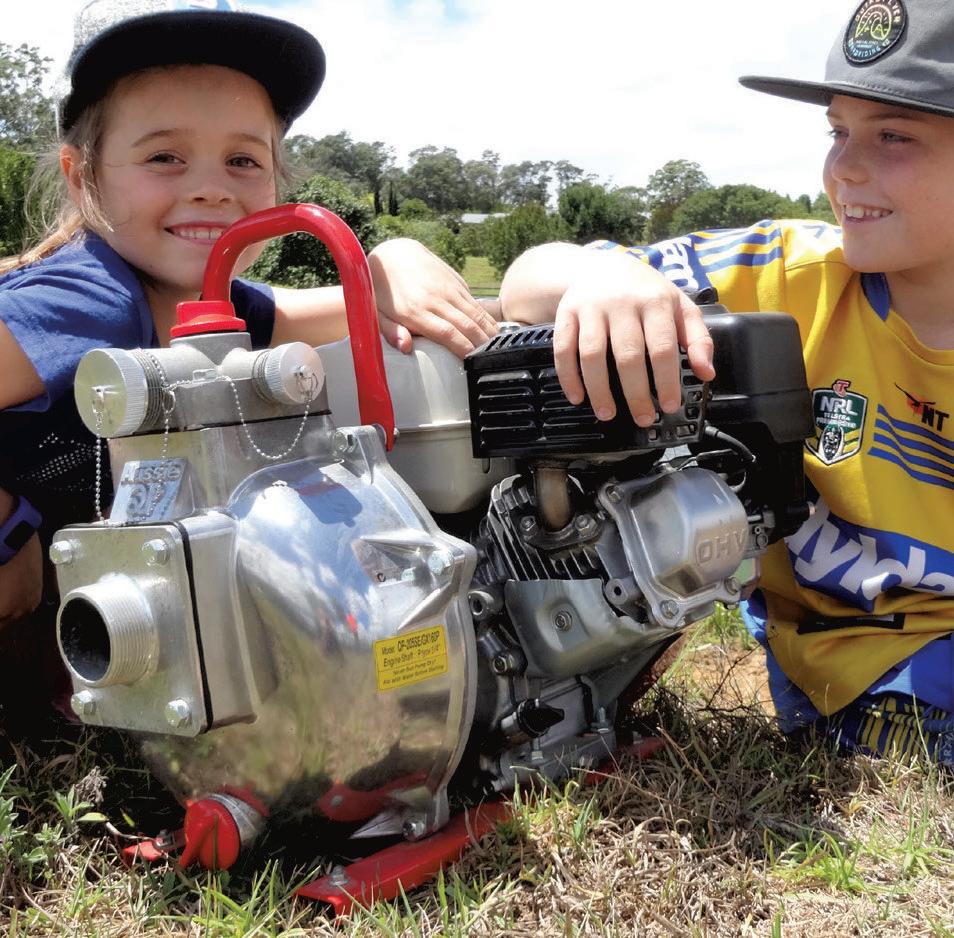
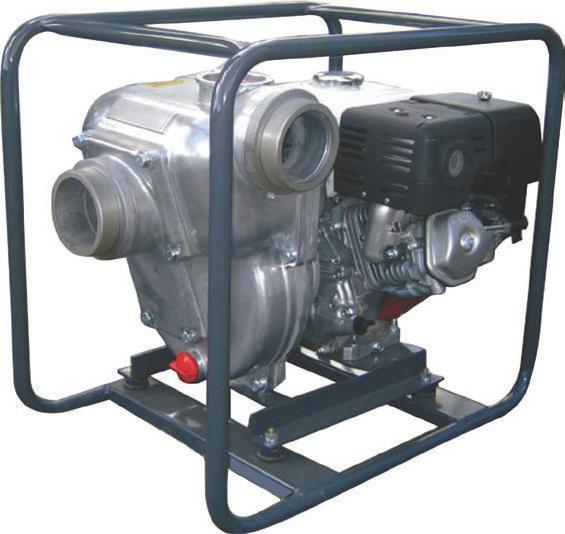


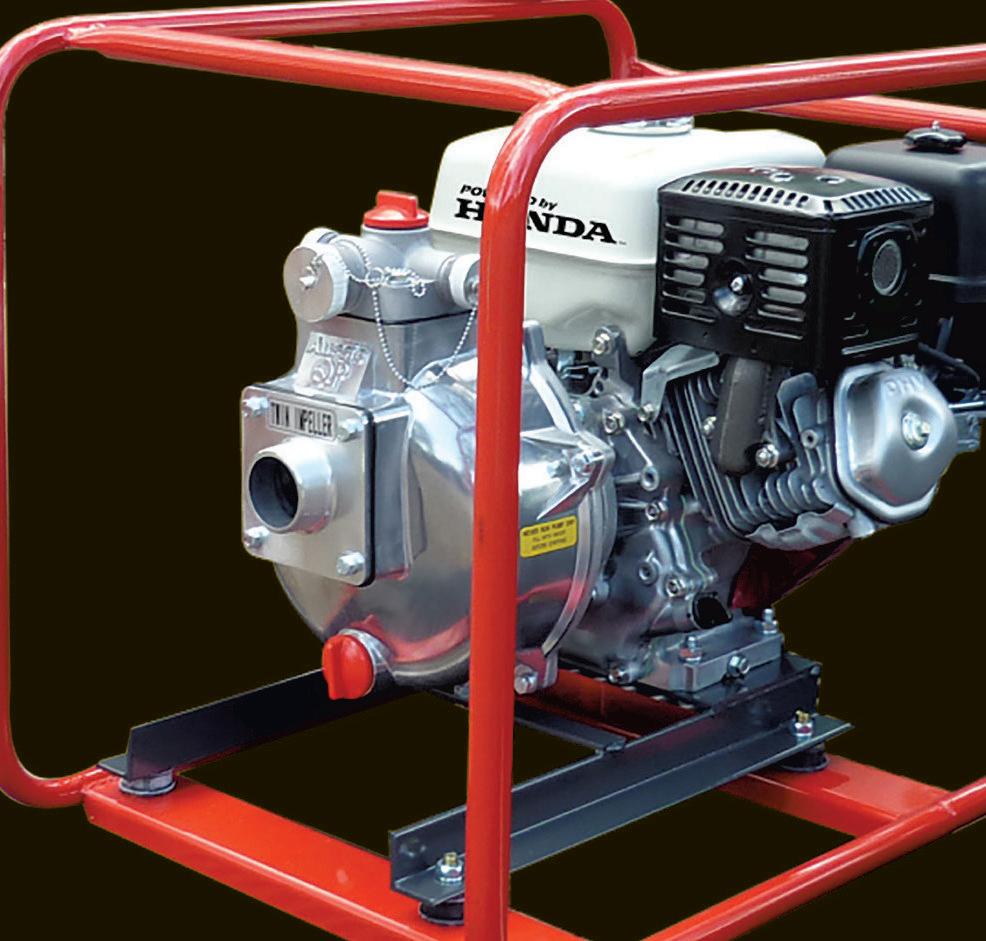

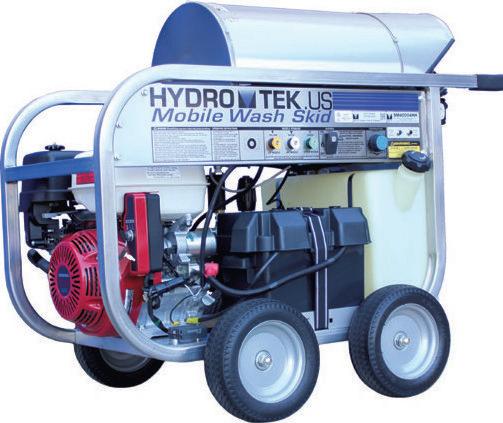

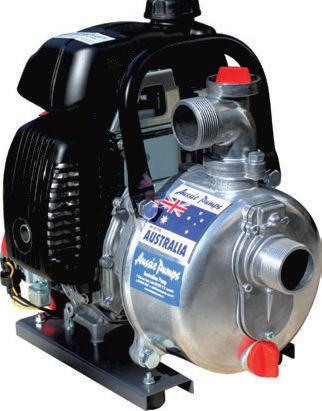













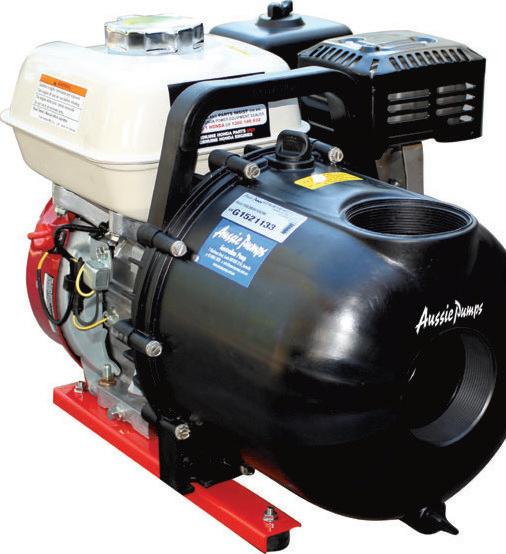







FIVE members of the Ben Cruachan Walking Club (BCWC) assisted Parks Victoria with maintenance work on a significant section of McMillans Walking Track within the Grant Historic Area on August 9.
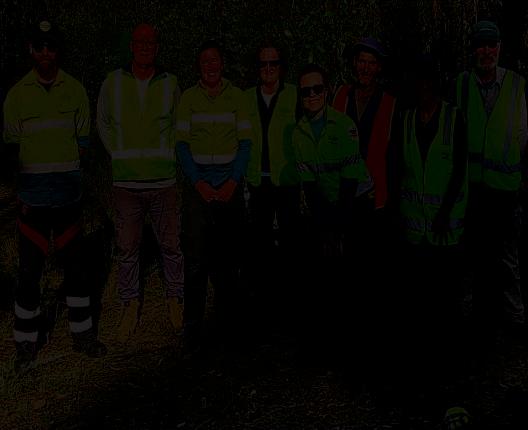
The sectionisabenched track, leaving Brewery Creek Track not far from Talbotville and thenfollowsthe embankment ofan old water race to the Wongungarra River
As with much of McMillans Walking Track it was constructed in the gold rush era of the 1860s.
These tracks were built to aspecification which required aminimum width of four feet (1.2m) and asteady gradient to facilitate movement by miners with pack horses or on foot pushing awheelbarrow.
To obtainthe minimum width it was necessaryinplaces tohew into the rock and build up the outer edge with dry stone walling. Thereisstill ample evidence of this construction workalong this 1.9-kilometre section of track.
cutting party stumbled onto gold bearing quartz at the point wherethe track departs Brewery Creek Track. McMillan recorded in his diary:
“Tuesday April 12. Remained in camp. Someofthe men found aquartzreef which appears to be very rich...most of them leaving.”
Unfortunately after the March 2019 bushfires burnt through this area, blackberry has bounced back in abundance. When BTACclearedthe track inMarch 2022, the section of track along the old water race was in places totally obscuredby blackberry. Walkers had not been able to find their way through.
Hopefully aprogram of spraying and regular clearance will help preserve this historic section of track.
It was acold and foggy start on August 9whenthe team met up at the depot in Dargo, but theday soon warmed to a perfect working dayastheymadetheir way through Grant and Talbotville to the start of the track. With lack of rainfall in recent times, the crossing of the Crooked River was straight forward.Armed with chainsaw, brush cutter,hedge trimmers, loppers and rakes, the team cleared abasic way through to the Wongungarra River and thenturnedbackand startedattacking the blackberry in earnest.
VICTORIAN fireservices arerecommending homeowners across the state prioritise cleaningtheir chimneysthis wintertohelp prevent afire.
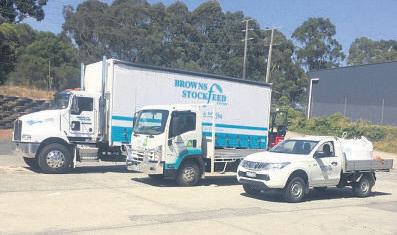
Achimney fireinahouse in the town of Raglan late last month is atimelyreminder of the importance of cleaning your chimney flue after afree-standing wood heater went up in flames.

Elmhurst FireBrigadefirefighterHamish Keith witnessed the impacts of the flue that was 95 per cent blocked by soot.
"Because of the design of the heater and the way it was burning, therewas asignificant build-up of black tar,which evidently caused the blockage and the fire toignite," Mr Keith said.
"It looked like cancer inside an artery.
"Luckily, the family had working smoke alarms that alerted them to the fire, as smoke filled 60 per cent of their house due to the chimney being unable to exhaust it."
CFAChiefOfficer, Jason Heffernan, said residents should have their chimneys professionally cleaned each year
"This is justone ofthe damaging48 chimney fires CFA have responded to this year," Mr Heffernan said.

"As you warmyour home this season, simply use atorch to regularly check for soot build-up or obstructions to reduce the risk of afirestartingfromyour fireplace or wood heater
Commissioner Freeman said.
"Alwaysuse afirescreen in front of an open fireand keep wood, clothes andother combustibles at least one metrefromfire.
"Extinguishyourfirebefore going to bed or leaving the house, and check that embers arecold beforedisposing of them."
Victorians are reminded that long-life battery or interconnected smokealarms located in all bedrooms, hallways and living areas of the home can save lives for as little as $20.
Some chimney fire safety tips are:
-Chimneys and flues should be cleaned annually;





-Over time therecould be abuild-up of creosote, ablack tar-like residue, which is highly flammable and could clog up chimneys, and;
This section of track is also significant in thehistoryofgold mining in Victoria. In 1864 amember of McMillans track
The work by the BCWC and Parks Victoria team involved cutting the blackberry and other vegetation back from the track as well as clearing logs and fallen trees to ensure the track is fit for walkers. Asurprising amount of work was achieved in the short working day theyhad.Parks Victoria organised the day, working alongside members of BCWC. This work will enable walkers to enjoy traversing this section of the track in greater safety and comfort.
"Our latest statistics show us most fatal fires start in sleeping and living areas, so for your family's best protection, smoke alarms should be installedinevery bedroom, living and hallway area."
FRVCommissioner,Gavin Freeman AFSM, said maintaining your working fireplace is essential for home safety.
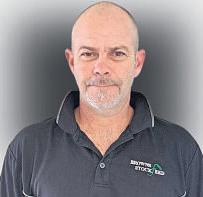
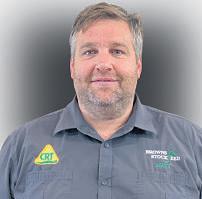
"Those of us with afireplace at home areenjoying them alot at this time of year.Proper maintenance ensures they don'tpose arisk to yourfamilyhome,"
-Creosote is not only caused by general use, it can also build up faster if you are using incorrect fuels, such as green wood or treated timbers.

To reduce the risk of afire starting from your fireplace or wood heater,you should:
-Use atorch to check forcreosote buildup or obstructions;

-Haveyourchimney professionally cleaned annually;
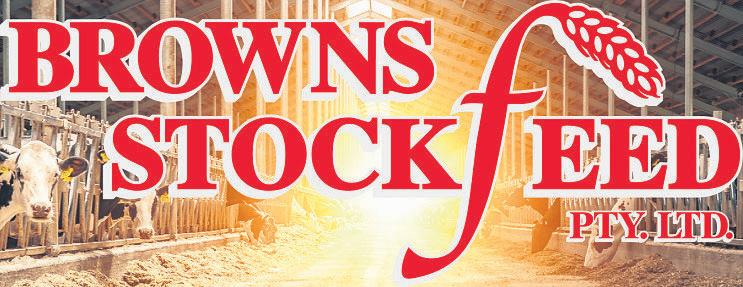

-Only burndry, clean wood, and;
-Extinguish your firebeforegoing to bed or leaving the house.

BEEKEEPERS areurged to be vigilant in monitoring for Varroa mite and keep up-todatewith permitsasAgricultureVictoria strengthensits surveillance in response to adetection over the border
Varroa mite is aparasite of adult honey bees and honey bee brood. It weakens and kills honey bee colonies and can also transmit honey bee viruses.
Victoria’s ChiefPlantHealthOfficer,Dr



Rosa Crnov, last week provided reassurance that no Varroa mite had been found in Victoria.
On Thursday, August24, the New South WalesDepartmentofPrimary Industries confirmed Varroa mite in beehives at Euroley in the Riverinaand Euston in the Sunraysiaregion, resulting in anew Biosecurity (Varroa mite) Emergency Order being issued.
NSW has led aresponse to eradicate
Varroa mite since it was first detected in Newcastle in 2022.
This comes as Victoria’s almond pollination season in the Sunraysia region is coming to an end, and beekeepers aremoving their hives to pollinate other Victorian fruit and crops.
Dr Crnov said AgricultureVictoria biosecurity officers had been on the ground in Sunraysia undertaking targeted surveillance, and no Varroa mite was detected.
“Victoria is committedtothe National Response Plan and will be undertaking further surveillance in the region,” Dr Crnov said.
“Weare also working closely with New South Wales to trace beehives and understand their movements.”
Under the nationally agreed response plan, no hives canmove within 25 kilometres of an infested beehive.Thisapplies
to bee hives located in Victoria that are locatedwithin NSW’s 25km zone at Euston.
“AgricultureVictoriawill make every effort to contactany beekeepers that mightbe affected by this zone,” Dr Crnov said.
“Beekeepers who think they might be impacted areencouraged to contact us.”
Victoria has arigorous permit system in place to help keep the state free from Varroa mite. Apermit is required for anyone bringing bees,hives, queen bees,used beekeepingequipment, pollen forbee feeding, andbee products,including honeycomb, into any part of Victoria from any other state or territory.
Dr Crnov said it was crucial beekeepers followthe mandatorypermitsystemfor entry of bees, hives and apiary movements into Victoria.
“This system helps protect our state while enabling essential horticulturalpollination

activities to continue,” she said.
“Application for queenbeesfromall states except New South Wales will be assessed. Permits will not be granted for queens, escorts and queen cells from NSW at this time.”
Victorianregistered beekeepers are required to keepmovement records under Victorian regulations, preferably in BeeMAX.
For moreinformation on Varroa requirements, reporting and permit applications, visit theVarroapageonthe Agriculture Victoria website: agriculture.vic.gov.au/ varroa.
Any suspectVarroa should be reported to the Exotic Plant Pest Hotline on 1800 084 881.
VICFORESTS has awarded about $850,000 in grants throughits GippslandFarm Forestry Program to 16 landholders across Gippsland to assist in planning, establishing andmanaging atotal of 274.3hectares of new farmforests.
TheGippsland-based program seeks to support the integration of timber trees within the context of awhole farmplan, ensuringthese trees play avital role in improving the broadrange of economic, environmental, social, and cultural values within andaround the farming landscape.
The grants program, which began in 2021 and is focused on increasing the supply
of plantation timber,has now awarded 26 grants to fund 361 hectares of new farm forests.
Applications werereceived from arange of farms within Bass Coast, Baw Baw, South Gippsland, Wellingtonand East Gippsland local government areas. However, details about the recipients and individualareas to be planted werenot availableatpublication time.
Building on the86.7 hectaresof new farmforestry areas funded through grants released last year,these plantings will be established by or on behalfofthe landholdersand grow within either woodlots,
shelterbelts, or wide-placed plantings
VicForests Senior FarmForestry Officer, Trevor Nicklen, said hardwood timber was becomingincreasingly valuable as supply had reduced.
“VicForests’ is encouraging and helping guide the uptakeoffarmforestry, including supporting thegrowth of learning networks and service providers, to help grow the industry,” Mr Nicklen said.
The timber from the trees established underthe grantsremainentirely the property of thelandholders. Applicants areencouraged to consider growing timber trees for income diversification and
as partofa whole farmplan,optimising the benefits of the timber trees for carbon sequestration, shelter,shade, biodiversity and general farmamenity.
Mr Nicklen said thereweregreat examples around Victoria where this had been done successfully.
The grants arefundedbythe Victorian government, which is incentivising tree planting at the farm scale through to much larger commercial plantations. Further grant opportunities areexpectedtobecome available later this year
RECENTmulti-million-hectareforest fires in Canada haveagain highlighted the dichotomy of opinion within the Australian community when it comes to bushfires. The knee-jerk response from environmentalists and most academics has been, “it’s all due toclimatechange”.
Firescientists and bushfireoperational people on the other hand, many of whom areincontact with Canadian land and bushfiremanagers, draw an entirely different conclusion: irrespective of the cause of theignitions,the explanation why the fires have been so difficult to control and havedone so much damageisbasically the absenceofsound landmanagement -inthis instance, the failurebyCanadian authorities to preparepotential firegrounds in the expectation of fire.
The reports my colleagues and Ihave received fromyoung WesternAustralian men and women deployedasfirefighters in Canada have been especially revealing. They recount how they have been fighting fires in forests that have been logged and then abandoned, and of forests left longunburnt, carrying tonnes of flammable fuel. And theyhavebeen struck by three things; theenormity of theresources that arebrought to bear on firefighting in North Americabut whichare still unableto control the fires; the futility of attemptingto control fierce forest fires with aerial water and retardant dropping, and; the difficulties in construction of firecontainment lines in forests growingonthin,mossy soils overlaying permafrost; bulldozers become bogged, or worse, disappear into sinkholes.
“Would it not have been better to do some fuel-reduction burning in these areas, so that tracking the edge of wildfires with bulldozers and trying to extinguish them with water bombing wouldnot be necessary?”, is aquestion on the lips of many experienced Australian bushfirespecialists as they contemplate the Canadian disaster
The dichotomy of views about the bushfires (climate change versus ineffective land management) has an echo in the other great bushfirecontroversy in which Australia is mired: what is the best approach for dealing with the bushfirethreat?
One group (mostly academics and environmentalists, supported by retired “fire chiefs”readyfor their close-ups) optsfor Emergency Response(sometimesknown as ‘The American Approach’) -wait for a firetostart and then throw everything at it so that it is extinguished beforeitdoes any damage.
The alternative approach (mostly promoted by bushfire practitioners known as ‘The AustralianApproach’) accepts that an emergencyresponse willalways be needed since bushfires can never be prevented,but adds that if the firegrounds areproperly prepared in expectation of afire, then fires will be easier, cheaper and safer to control by emergency responders.


The chiefmitigationtool of the second group is fuel-reduction burning-deliberate, supervised burning undermildweather conditions. The aim is not to “prevent” bushfires, which is impossible, but to reduce the amount of flammable fuel in bushfire-prone bushland in advance of a bushfirestarting.Itiscombustiblefuel, comprising dry leaves, twigs and flammable shrubs that feeds bushfireintensity; and it is bushfireintensity thatdetermines how hard, dangerous and costly afireis to control.
Mostly this argument has been one-sided in recent times. The Emergency Response proponents arewell in control of bushfire managementin Queensland,NSW,and Victoria. In these jurisdictions, bushfire mitigation is either not properly funded or is not carried out in away to ensureitwill be effective in wildfirecontrol.
Fuel-reduction burningis condemned because,its opponentsassert; itcauses ecological and environmental damage, and; it does not help in thecontrolofbushfires.

Amorerecent additiontothe armoury of the anti-burnersis the preposterous idea(dreamed up by aCurtin University academic) that if eucalyptforests areleft long-unburnt they become non-flammable. Incredibly, this nonsense has been embraced by urban environmentalistsand is constantly being pushed at the publicby acompliant, incurious and all too gullible media.
Those whoadvocatethe Emergency Response only approach arepromoting an out-dated, failed and a failing strategy. Nowhereinbushfire-prone areas anywhere in the world has this approach worked It failed in south-west Western Australia, culminatinginthe 1961 fires; it failed in

south-eastern Australia, culminating in the devastating Black Saturday and Black Summer fires, and it is failing (again) as we speak in Canadaand the US, where astronomical resources (by our standards) can be thrown at bushfires.
It will inevitably fail again in eastern Australia sometime in the next few years as bushfirefuels build-up again in the areas burned in Black Summer and nothing is done to reduce them. None of the arguments against prescribed burning stack up in the face either of science or experience.
On the contrary, biodiversity and the environment arealtogether better protected by mildcontrolledfires thanbyintense uncontrolled wildfires. Thereisnot an experiencedfirefighteranywhere in the world who does not understand that it is easier, safer and cheaper to control bushfires in light rather than in heavy fuels.
Far from becoming non-flammable, karri forest left unburnt fornearly acentury carries massive tonnages of combustible fuels. Unfortunately, thisexperience doesnot trump the ideology of the green academics andactivists who arecalling theshots on bushfirepolicy in Australia’s easternstates.
This depressing situation is leading many bushfire specialists ofmygenerationto consider slashingtheir wrists in despair

“Let the bastards burn, if that’s the way they want to play it” is acomment Iheard from one of Australia’s most distinguished bushfirescientists, sick to the coreof the way the authorities in Victoria and NSW aredeliberately setting up rural people and environments for destruction.
Iamfrequently asked if Ican explain the madness of governments and professional bureaucracies who promoteafailed and failing bushfirestrategy,and who blatantly ignorethe lessons of history. Icannot explain it.
The only thingIcan do is to relatethe goodnewsstory from WesternAustralia, one corner of the continent wherethere is a firmcommitment by government to invest in effective preparedness and mitigation as well as in emergency response. The WA approach is not perfect, but it is thoughtthroughand supported by good science
The hearts and minds of our political leaders andour professionalbushfiremanagers arein the right place.The consequences of action, and of inaction, areunderstood. The bushfireauthorities accept that they areaccountable for bushfireoutcomes.
Australia isin the depths ofan era of incompetent andfailing bushfire management.
The approachadoptedbygovernments and land and fireagencies (in NSW and Victoria, in particular) is deeply unprofessional, and will inevitably result in new bushfiredisasters in the years ahead. To rely on Emergency Response is to rely on somethingthat can never work when needed most, i.e., when there are multiple
ignitions in heavy fuels on aday of extreme fireweather,atthe end of adrought. This is not an imaginary scenario, but aset of probabilities that will occur once or twice nearly every few summers, somewherein the country. Needless to say, when the next cycle of nasty fires occur in Australia the cry will go up “it’s all due to climate change”, but Iamnot surehow long this excuse for incompetence can be sustained.Eventually someone will want to see actual evidence of how the climate has changed to produce such dramatically horrible outcomes. For another,people will want to know why climate change has notcausedsimilar disasters in WesternAustralia.
Furthermore, every bushfirescientist and manager in the land must know about “the bushfirebehaviourtriangle” whichdemonstrates that (once you have ignition) the behaviour of afireisa product of weather fuels and topography.
The merest study of history will reveal that the Australian bushland has experienced droughts, severefireweather and bushfires across millennia. Any increase in the frequency of severefireweatherdue to climate change or climate cycles, regardless of the cause, can only be counteracted by focussing management effort on fuels. Nobody can control weather or alter topography.
Afinal thought on the Canadian bushfires. One of the things which is most often criticised about fuel reduction burning is that it generates smoke, and it is claimed that this harms some people’s health and contributes to global warming. The smoke from theCanadian bushfiresblanketed the entirenorth-east of the USA for weeks and has even reached Europe. Smoke is an inevitable consequence of fire, but the smoke from amild-intensityprescribed burnislightand ephemeral andcan be managed to minimise the risk of smoking out major population centres. The reverse is the case for smoke from wildfires, another key factor in supportofprograms that make wildfirecontrol quicker and easier
Thisarticle is an abridgedversionofan opinion piece that appeared in Quadrant Online.

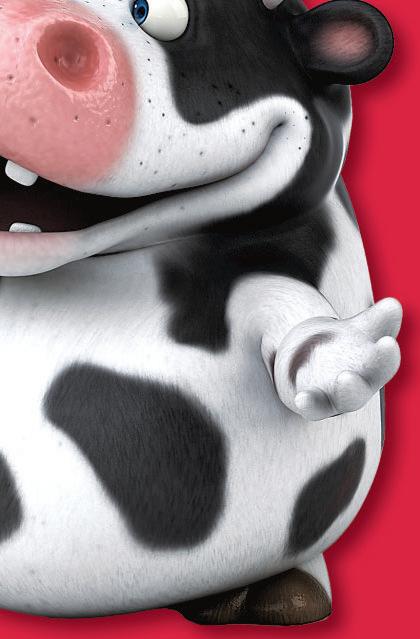
Roger Underwood,OAM, is aformer district and regional forest manager in Western Australia and aspecialist in bushfireoperations, policy and history. He wasfor 20 yearsthe Chairman of the BushfireFront, an organisationdedicated to minimising bushfiredamage inWestern Australia.

WOULD IT NOT HAVE BEEN BETTER TO DO SOME FUELREDUCTION BURNING IN THESE AREAS, SO THAT TRACKING THE EDGE OF WILDFIRES WITH BULLDOZERS AND TRYING TO EXTINGUISH THEM WITH WATER BOMBING WOULD NOT BE NECESSARY?
Zoe ASKEW
ERECTEDin1991, an old irrigation wheel on top of agreystoned mount at the Denisonroundabout-whereGrimmes Road, Three Chain Road, and TraralgonMaffra Road meet, and known as Kenevan’s Corner -commemorates Soldier Settlement in the Nambrok Denison area.
The erection of the monument, facilitated by acommittee of about 25 people, marked 40 years sincethe first soldier settlers arrived in the region, its unveiling attracting acrowd of morethan 2000.
In 2021,aplaque withthe names of Nambrok/Denisonsoldier settlers was installed, commemorating their service to Australiaand theircontributionin building the region’s community and dairy farming industry.

While theoriginalDenison/Namrbok soldier settlers committeenolongerexists, the latest addition to the soldiersettlement memorial is the work of the new unofficial committee comprised of Mrs Jenny McMillian, Mr GeoffSmith and Mr Graeme Anderson.
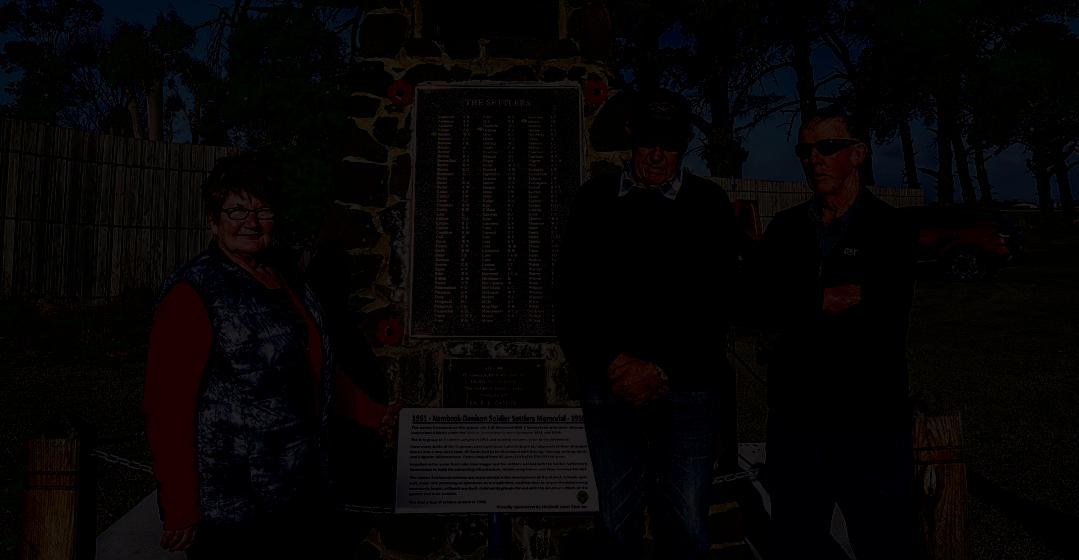
Mrs McMillian’sfather, Frank Norden, was among the morethan 120 returned WW2 soldiers who settled in the Denison/ Nambrok region through the soldier settlement scheme.
Mr Smith’s father,Gordon Smith, was among the secondgroup of ex-servicemen to receive land and settle in the Denison/ Nambrokregion.
Mr Anderson, aveteranhimself, bought asoldiersettlement farmin1984 andwas close friends with many of the men who settled on farms in the Denison/Nambrok region after WW2.
Regional Roads Victoria installed permanent bollards in July to provide better access and separate the memorial from a nearby gravel stack at the request of Mrs McMillian, Mr Smith, and Mr Anderson as part of their feat to preserve Denison/ Nambrok soldier settlement history.
“RegionalRoads Victoria understands the importance of the Soldier Settlement Memorial atKenevan’sCorner,which is why we recently cleaned upand levelled out the area,” Regional Director (Gippsland), DepartmentofTransportand Planning Beth Liley said.
“At the request of the community we



installedpermanent bollards onsitein July, howeverthereis no intention to create aformalised parking space in the area, beyond the current works.”
Mrs McMillan, who authored ThePlains
-A HistoryofNambrok-Denison, said the soldier settlement monument recognises the soldier settlement scheme’s significant role in the region’s history and the lives of the returned war soldiers who settled here.
“It was awhole change to the landscape, and the government gave those returned

servicepeoplewho appliedanopportunity to change their lives and build new ones,” Mrs McMillan said.
“And with all the new settlements, it brought children; schools werebuilt, the church was built, awhole lot of changes in operations, it made acommunity.”
The SoldierSettlement Commission, which recognised and addressed previous failures in soldier settlement following WW1, was establishedbythe state government in 1946 under the Solider Settlement Act forthe rehabilitation of ex-servicemen from the 1939-1945 war
The Soldier Settlement Commission was granted authority to buy property from private landowners andset apart suitable areas of Crown Land for returned war soldiers to settle, through which they acquired 22,00 acres from 65 farmers in the Nambrok-Denison region.

The first seven Nambrok-Denisonsoldier settlers -Sam Anderson, Len Anderson, Lloyd Jones, Bryan Rodaughan,Max Duffy, Arthur Fitzpatrick and Ron Collin -arrived in 1951.
Over eight years, the Soldier Settlement Commission allocated 138 blocks of land in the Nambrok-Denison region to 15 groups of soldier settlers.
Ray Chambers, Bernie Laws, Vic Jondahl, Fred Wheeler and Len Cole were the 15th and final group of soldier settlers to arrive in 1958.
Solidersettlement in Nambrok and Denison after WW2 changed the entire landscape of the region and played akey role in shaping the community as it is known today.
Solidersettlement in Nambrok and Denison sparked theneedfor Glenmaggie Lake to hold alarger capacity.
Glenmaggie, which was first built betweenNovember 1919 and1926, held 132,000 megalitres at full capacity, providing irrigation to about 360 square kilometres of farming land to properties in the Macalister Irrigation District, near Maffra, Heyfield, Stratfordand Sale.
With an injection of settlerstothe Namrbok-Denison region and moreto come, all of whom would requirewater to prosperupon settlement, the Glenmaggie project was launched to raise the walls 3.6 metres, increasing its capacity to 177,640 megalitres.
The Glenmaggieproject was one of Victoria’s mostextensiveirrigation and waterprojects of the 1950s, which provided work for the earlier groups of soldier settlers and many other local workers.
“It changed the whole landscape of the Nambork-Denison area,” Mrs McMillan said.


“By bringingthe irrigation, extending Glenmaggie that brought employment at the beginning for the (soldier settlement) farmers that wereallocated the land, changed the landscape to irrigated from dry land.”
Soldier settlement brought multifaceted benefitstothe region, from the expansion of Glenmaggie Lake, creating newly irrigated land, to abig population boost, bringing morechildren to the area, who would later comprisefootball teams, netball teams and tennis clubs.
Solider settlement is akey event in the region’s rich history, afoundation for the Nambrok-Denison and the surrounding area.
An old irrigation wheel on top of agrey stoned mount at the Denison roundabout, whereGrimmes Road, Three Chain Road, and Traralgon-Maffra Road meet, and known as Kenevan’s Corner commemorates this significant part of local history and the men who served their country to makeAustraliathe safe, opportunistic nation it is today.

Australia’sfarmersneedtobecongratulated on theexcellentresultsfromthis year’sharvest.
Of course the weather played apart, but our tireless farmers know how to utiliseall the resourcesnecessarytofeeda nation.
The ABARESAgricultural Commodities Report at June 2023 predictsAustralian farmerswillharvest $44b of crops including grain,oilseed, pulse products, cottonand sugar
Muchofthatcropiscoming offbetween Septemberand December,ascombines go to work allthe waydown from Central Queensland.
Unfortunatelygrowerscan’t relax untilthe crop is in Farmers arerightfully concerned about critical crop losses.
The lastfew years of La Nina rainfall have brought rain,and now the pendulumisswinging back to adrier andhotter El Nino.
The threat of bushfires, grassfires and crop firesisaccelerating
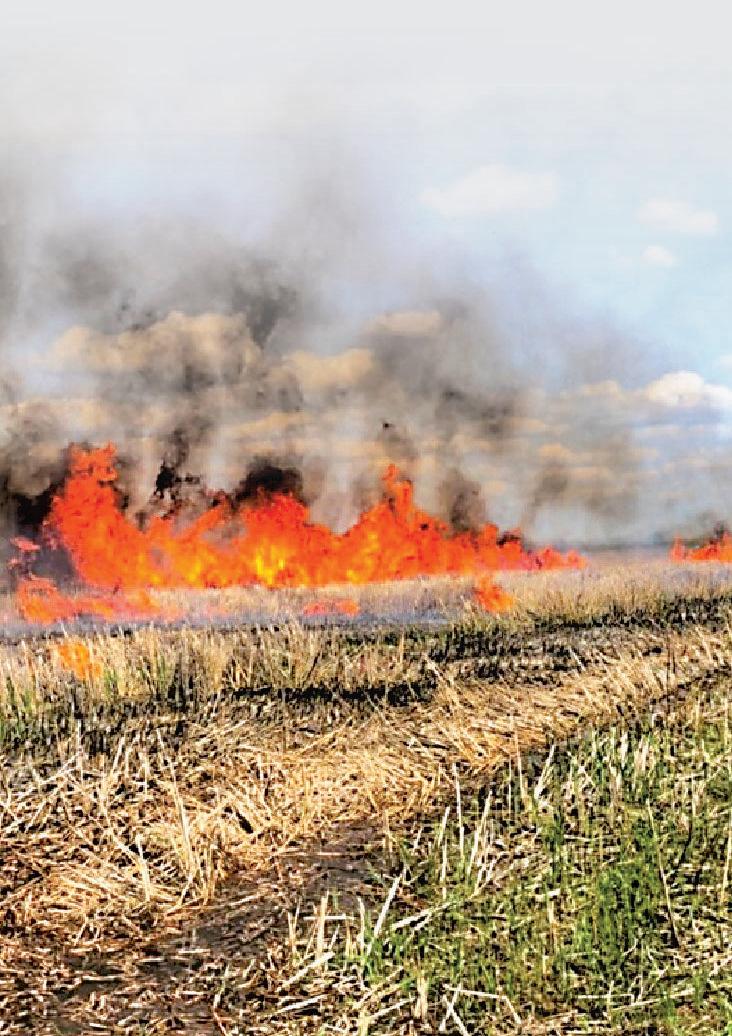
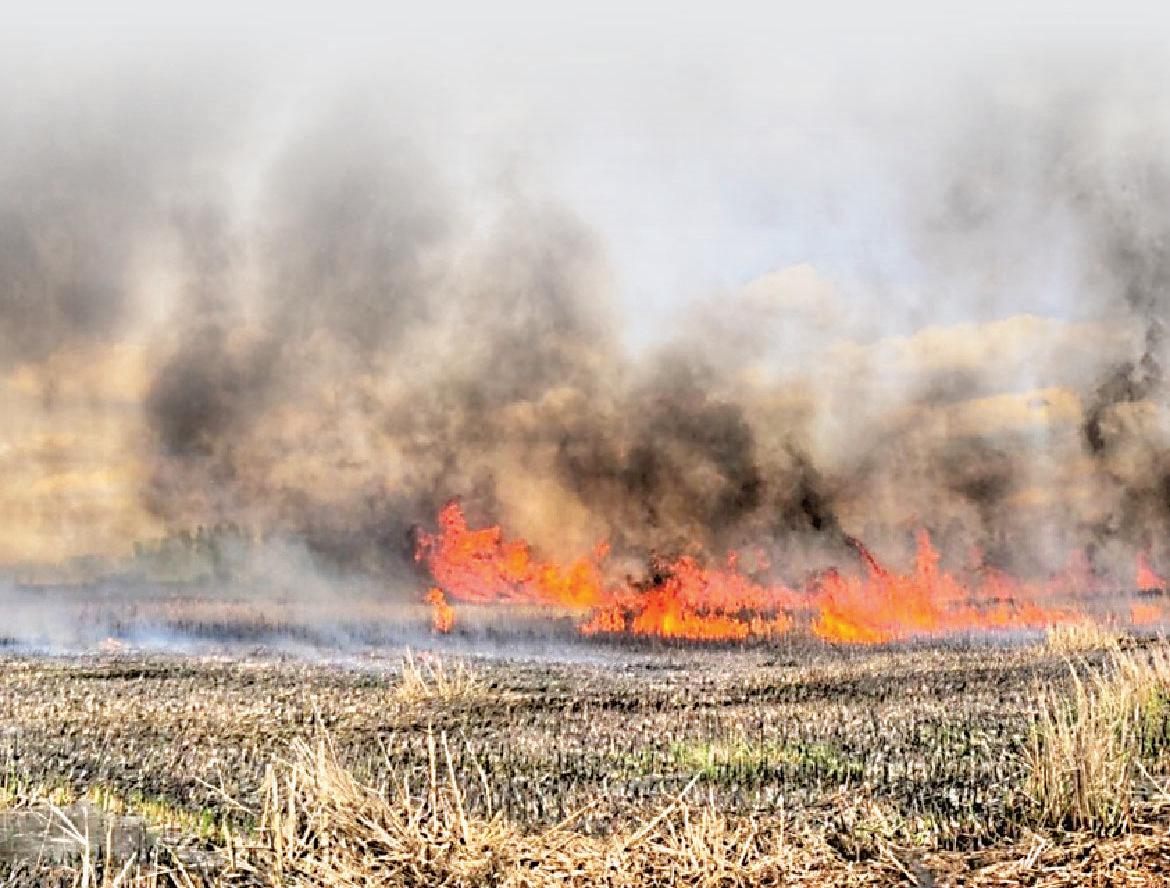

It’stragic to runthe risk of fire,having workedsohardall year,invested in fertilizer,dieselfuel, equipmentmaintenance andvital seed itself, onlytosee it go up in flames during harvest.
Nationwide, firebrigades attend harvest related firesalmost everyday Researchshows thatfires can be started from alightningstrike, embersfroma camp fire,a cigarettebutt,orevenfrom sparks generated from thecombine itself.
“Weheard of aharvestfirestarted by an overheated bearing on aJohn Deere harvester,” saidAussiePumps Regional ManagerMichelle Anderson
“A passer-by happened to be thelocal AussiePumps dealer!
He raisedthe alarm in time,the water cartwas broughtinand the crop and harvester were saved.”
“Having water and apump on hand to douse spot fires can be the difference between aminor incident or catastrophic crop and equipment loss,”saidMichelle “Werecommend adieselpowered pump underthese extremeconditions because it’ssafertorefuelwhenthere areembers or hot equipment around.”
Aussie Pumps, Australia’s leader in fire pump design and development,worked withfarmers to develop pumps capable of providing real protection



“Thereisnopointinhavinga 10,000 litrecapacity water cartifthe pump isn’t
powerful enough to usethatcapacity effectively,”explained Michelle.
TheAussie Mr T2”twin impeller pump is regarded bythe market as aleader in its class.
TheMrTcomes with agenuine 10hp Yanmar electric start, air cooleddiesel engine.
Thepump is superbly matched with theengine’scapability,and is designed to getthe most outofbothpumpand engine
The Yanmar offers loadsoftorque and allows thepumptodeliver up to 90 metres head and amaximum flow up to 450litres per minute.
“Anadded bonus is thepump’s ability to draft water from creeksand dams.
It has an unequalled vertical suction lift of 7.6m,” said Michelle.

The AussieMrTisavailable in either 2” or 3” configuration.
It can deliver flows in excessof200 litres per minute at 65 metrehead.
Atanker version of theMrT is supplied on astainless steel base platewith anti-vibration mountsreadyfor easy installationonthe tanker’splatform.
For largerapplications Aussie Pumps developed a3”pumpthatdeliversflows of up to 1,000 litresper minute
“If you’vegot the capacityinthe water cart, it’ssmarttouse apumpthat’sgot serious flow capabilities,” said Michelle. “Aussie has developeda QP310SX for just this type of application.”
Aussie Pumps originallydeveloped the big 3” highpressure pump as avillage fireprotection unit.
Thecompany claims that this3”pump is the firstofits kind to provide genuine ‘knock down’performance high volumesathighpressure
“We’ve accelerated production of our Yanmar powered firepumpsahead of the fire season this yeartosupport farmers in their preparations Conditions areset for ahorrificsummer andwewanttohelp protect crops, livestock andlives,”saidMichelle.
Aussie Pumpshas printed huge quantities of theirFREEAussie Bushfire Survival Guide to give away. It is aterrificdocument that showsa widerange of actionsthatcan betaken to minimise therisktoproperty and livestock.
Contact your local dealer,orAussie Pumpsfor your FREE copy Further information is available from AustralianPumpIndustries. aussiepumps.com.au



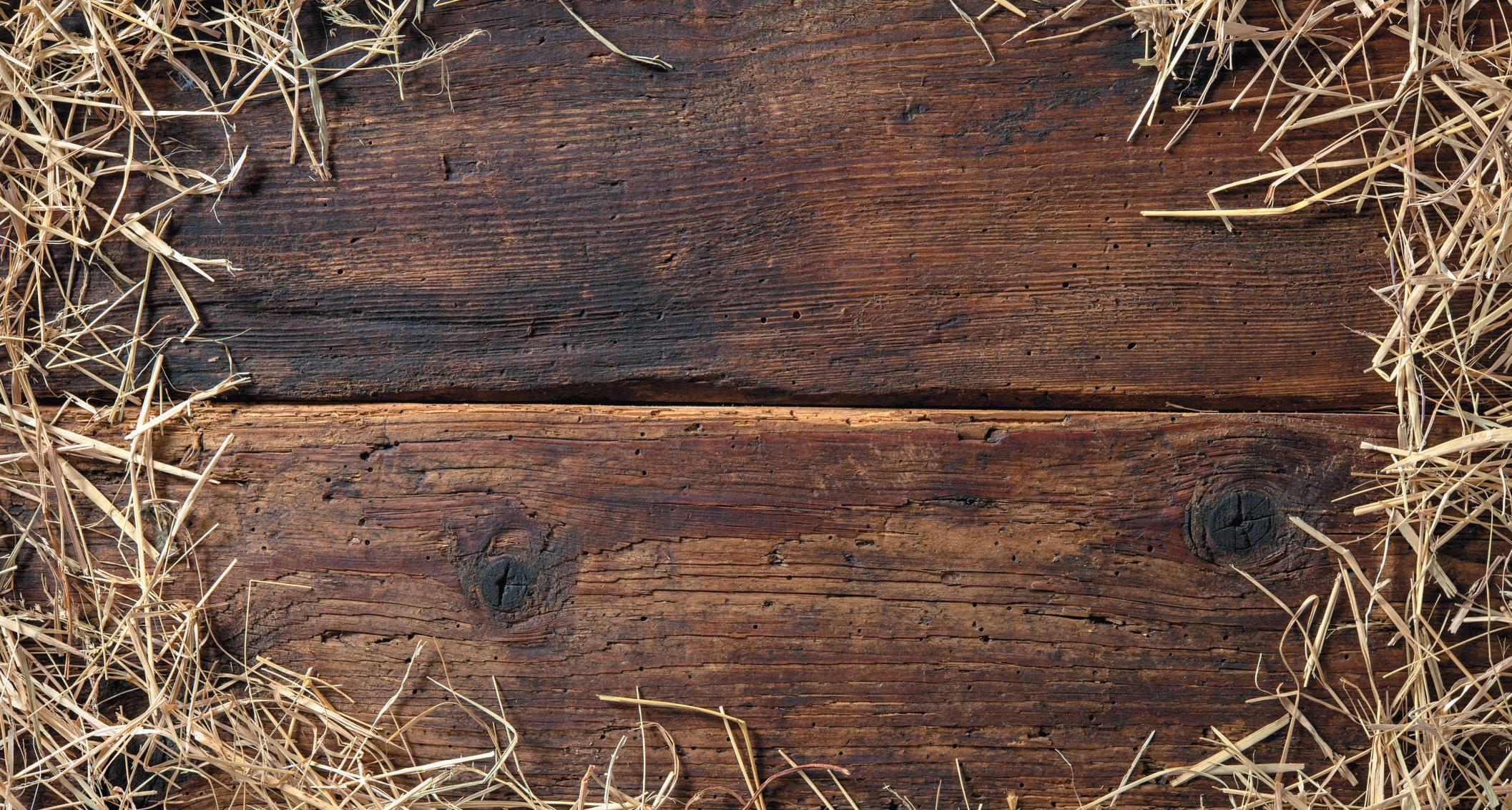



■ Greater quality feed test results compared to hay
■ Less exposed to weather damage.
■ Unaffected by the type of storage and storage surface.
■ Transportcosts arehigher on adry matter basis compared to hay because with silage you arecarting alot of unnecessarywater
■ Higher deliverycost based on protein, metabolisable energy,neutral detergent fibreona drymatter basis.
■ Baling cost per tonne is higher

■ A‘normal’ bale of Silage is approximately between 50-75% percent water


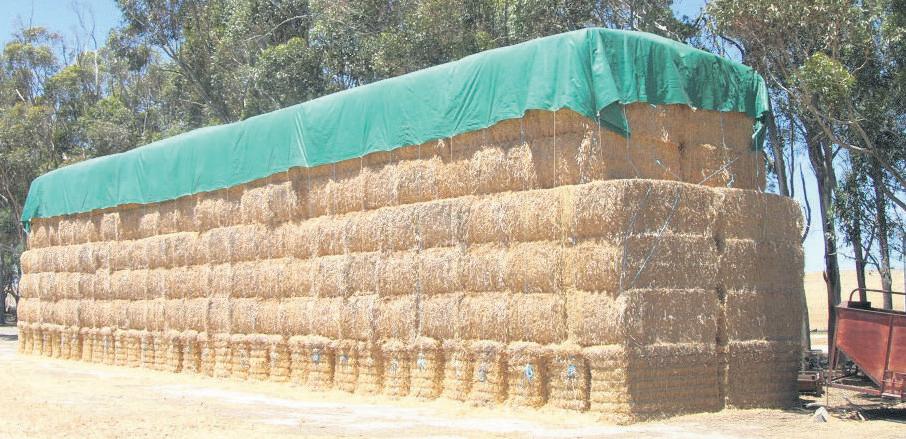

■ Efficient to transportwith lower costs on adry matter basis compared to silage and straw




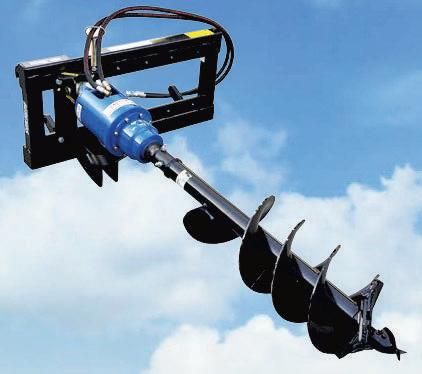

■ Lower deliverycosts when taking into consideration protein, metabolisable energy,neutral detergent fibreetc.
■ Lower baling costs per tonne
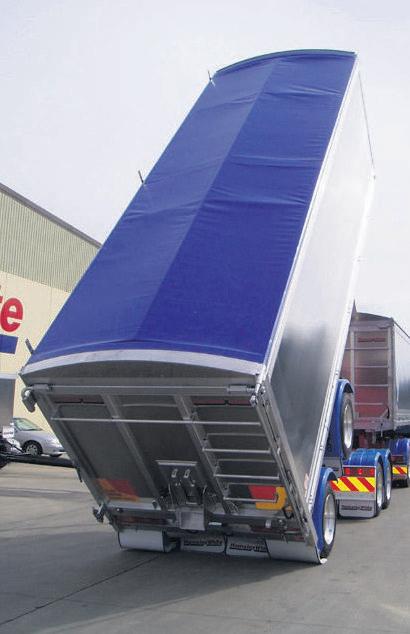
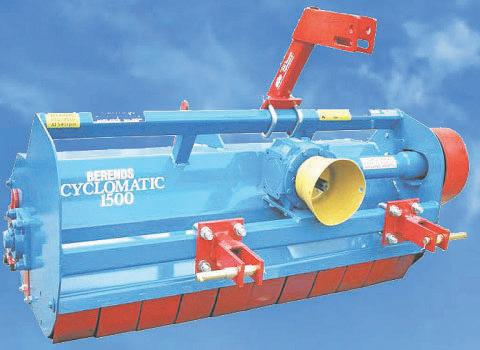

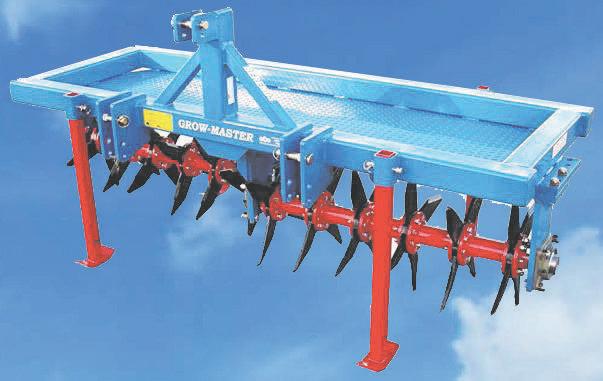
■ Can be exposed to weather damage whilst curing.

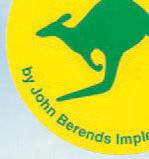


■ Feed test results aregenerally lower when compared to silage.
■ Degrades faster if stored unprotected outside (must be shed stored).






We allunderstand the importance of maintaining top-quality hay,especially considering the growing demand from both local and exportmarkets.
In this article, we’ll explorerecent shifts in the hay shed landscape and sharesome valuable ideas for your upcoming hay shed project.
Bay sizes and shed heights have been evolving.
The standard8-meter bay spacing has been popular for its cost-effectiveness and practicality
However,there’sashift towards larger bay sizes.
Bay spacings of 8.25 meters and 8.5 meters have become morecommon, with some customers even opting for 9or 10-meter bay spacings. The rationale behind this trend is faster loading and unloading and improved access for testing bales.
While 6.75 and 7.5-meter heights remain common for hay sheds, an 8-meter clearance height is gaining traction. This additional height provides moreroom when handling top bales and enhances air circulation around the bales.

Larger operators and exporthay storage companies often opt for 9-meter high sheds, not only for increased storage capacity but also due to the machinery available for safe stacking at this height.

Canopies arebecoming apopular addition to various farmshed projects, especially for hay sheds, machinerysheds,and workshops.
Canopies offer an extra layer of protection for hay against weather elements, reducing weather-related damage.
Moreover,these larger canopies enable loading and unloading trucks undercover shielding them from the weather
The most favoured hay shed sizes and configurations arewithin the standard
size range developed specifically for the agricultural industry.
These standardised designs strike a balance between cost-effectiveness and practicality
Hereare some popular sizes from the last few years:
■ 32m (L) x18m (W)x6m(H) –Stores approximately 1,008 big squarebales.


■ 48m (L) x24m (W)x7.5m (H) –Provides storage for around 2,050 big square bales.
■ 64m (L) x24m (W)x7.5m (H) –Accommodates approximately 3,650 big squarebales.
Our building consultants areheretoguide
you through your hay shed journey
They’ll present arange of options tailored to your requirements, complete with a cost-per-bale breakdown for comparison. With their expertise, you can make an informed decision that aligns with your needs and budget.
The hay shed landscape is evolving with larger bays, taller sheds, practical canopies, and cost-effective solutions taking centrestage
Action Steel areheretosupport you in creating the ideal hay storage solution, driven by quality,practicality,and the commitment to do what’sright –everytime, everyday






















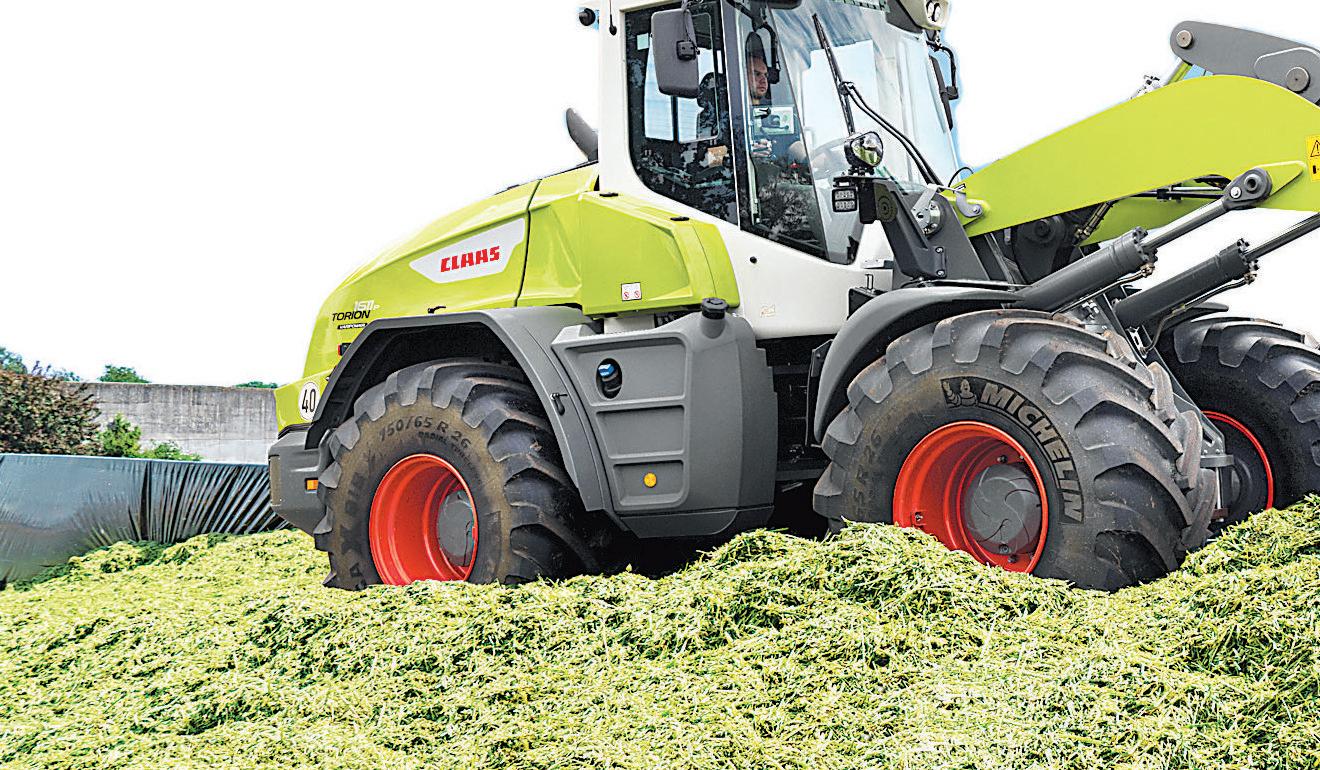
CLAAS Harvest Centre has entered the agricultural wheeled loader market with the Australian release of three models from the CLAAS TORION range
CLAAS has been manufacturing agricultural wheeled loaders and telehandlers in partnership with materials handling specialist Liebherr since 2018

CLAAS Harvest Centre Product Manager – Materials Handling, Shane Barratt, says the partnership brings together two leaders in their respective fields
“These machines combine Liebherr’s lengthy experience in construction and materials handling and CLAAS’ expertise in powertrain management and the unique demands of agricultural environments,” he says
The end result are high-performance machines that can efficiently, effortlessly and safely move materials across a range of distances and heights, often in constrained spaces ” The TORION range spans 11 models across three series three of which are available in Australia: the 1913, 1611 and 1611P
“The 1913 has the extra power and lift capacity required for grain handling or filling large loader wagons, while the 1611 and 1611P models are mediumsized machines that are more suitable for silage clamps and materials handling,” Shane says
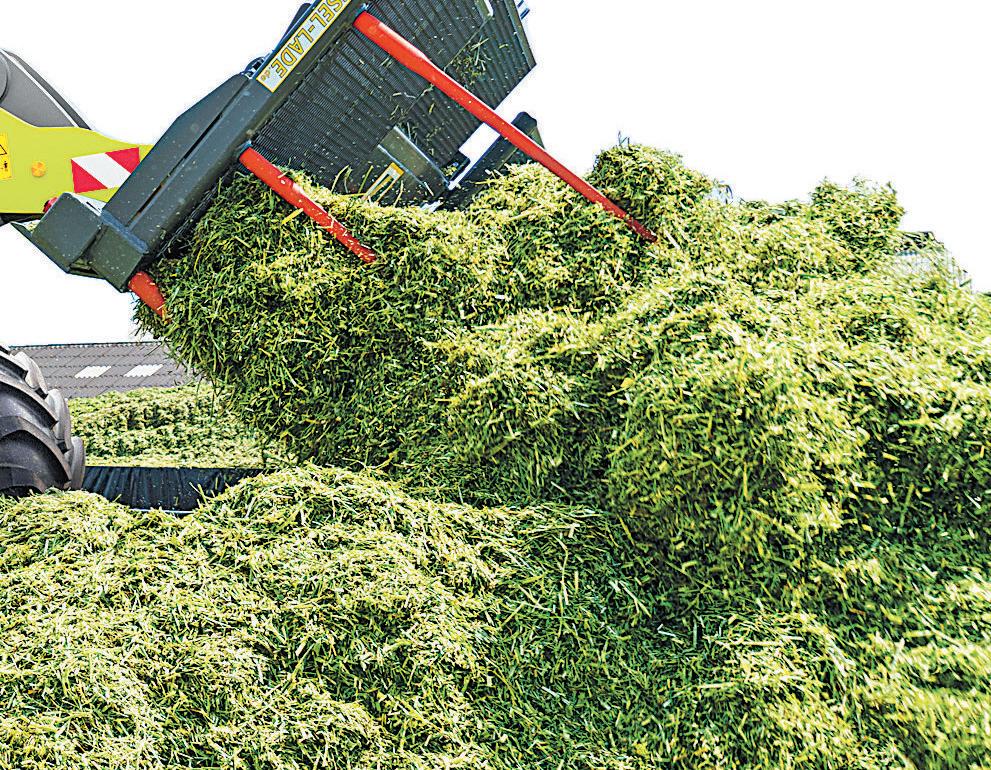
The TORION 1913 has a fuel-efficient
four-cylinder, seven-litre Liebherr engine that delivers a maximum output of 222 horsepower
“Thanks to CLAAS’ ‘low-speed, high torque’ powertrain concept, maximum torque is produced at just 1100 rpm and maximum power at 1150 rpm,” Shane says
“The dynamic powertrain management, which automatically adjusts the engine output to operating conditions, and the ‘on demand’ engine cooling system further reduce fuel consumption
This is linked to a proven split-power CMATIC continuously variable transmission for smooth acceleration without losing traction or the need to shift gears

“Combined with larger travel pumps and hydrostats for the VARIPOWER drive, this results in extremely smooth driving dynamics ” The 1913 has a maximum tipping load of 12 5 tonnes when fully articulated and a maximum tipping height of 4 15m
The maximum hydraulic output of 234 L/min enables faster load cycles of just over five seconds
The optional high-lift mast extends tipping height to 4 7m
In addition to a 10cm longer wheelbase, the higher operating weight of 18 5 tonnes provides optimum balance and stability

The 1611 and 1611P are powered by a six-cylinder, 6 8 litre DPS engine that delivers a maximum output of 188 and 252hp, respectively
They have a maximum tipping load of 9 4 tonnes or 10 25 tonnes, respectively, when fully articulated and a maximum tipping height of 3 98m
The optional high-lift masts boost tipping height to 4 52m
The 1911 weighs in at 15 8 tonnes, while the 1911P is 600kg lighter
All three models feature Liebherr s ‘Z-kinematic’ system, which seamlessly jobs the lifting arms, hydraulic rams and pumps into a single operating system for smooth and efficient operation
“Kinematics is the study of geometry in motion a cross between physics and mathematics,” Shane says “The 1611 and 1611P incorporate longer lifting arms, larger hydraulic rams and more powerful hydraulic pumps that significantly improve the lifting and holding power over the entire lifting range, allowing larger shovel volumes and heavier bale grabs
“The working hydraulics allow the mast to be controlled with great precision and safety, while the automated lifting height bucket return lowering depth and tipping/shaking functions ensure quick and easy loading with minimal operator effort
“All models can be equipped with a weighing device with additional memory and back- weighing function

“The intuitive operating concept means even the most inexperienced operators become highly productive


“The interior of the spacious cabs provide 360-degree visibility and plenty of smart functions to reduce fatigue on long working days ”
About CLAAS Harvest Centre: CLAAS Harvest Centre is one of the largest privately-owned farm machinery distributors in Australasia It represents some of the world’s leading farm machinery brands, including CLAAS, AMAZONE, JCB (NZ) and Väderstad (AU), via its network of 33 owned and franchised CLAAS Harvest Centres and 22 independent dealerships throughout New Zealand and Australia
More information:

CLAAS Harvest Centre Product Manager – Materials Handling, Shane Barratt, +61 448 032 758



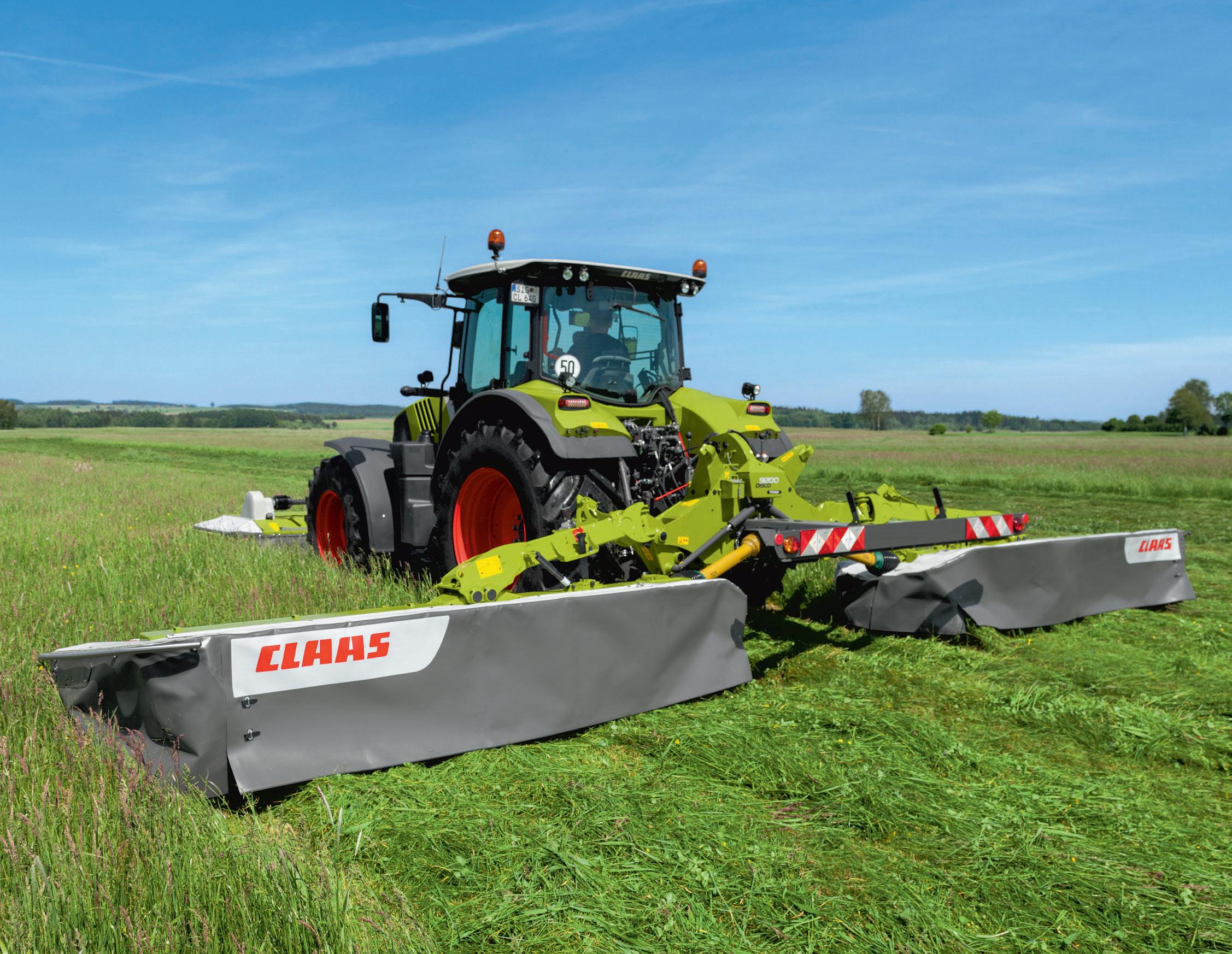

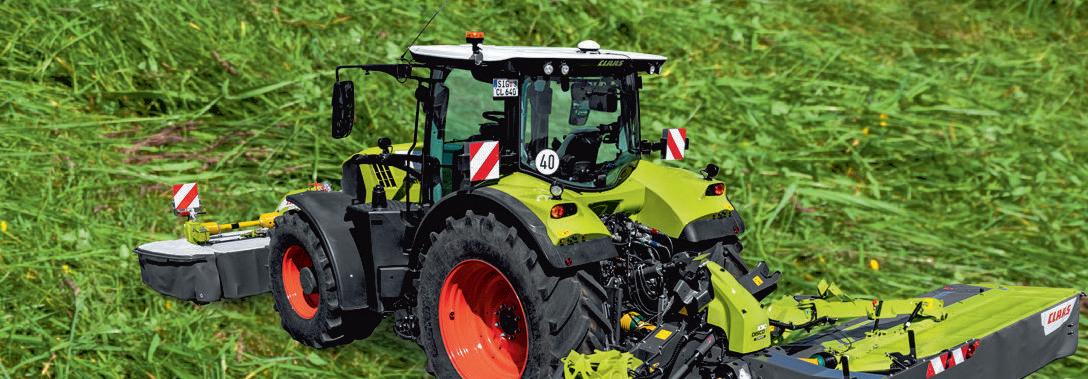
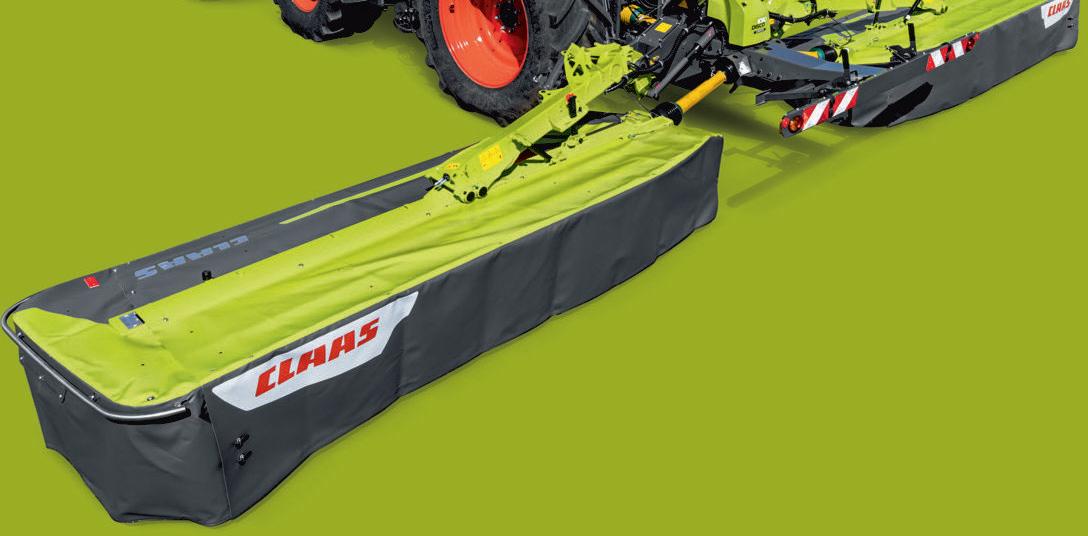































As the farming landscape evolves and challenges persist, having areliable partner that ensures the smooth operation of your agricultural endeavours is not just an advantage; it’sanecessity
Enter Brandt, aname synonymous with excellence in hay and forage solutions.


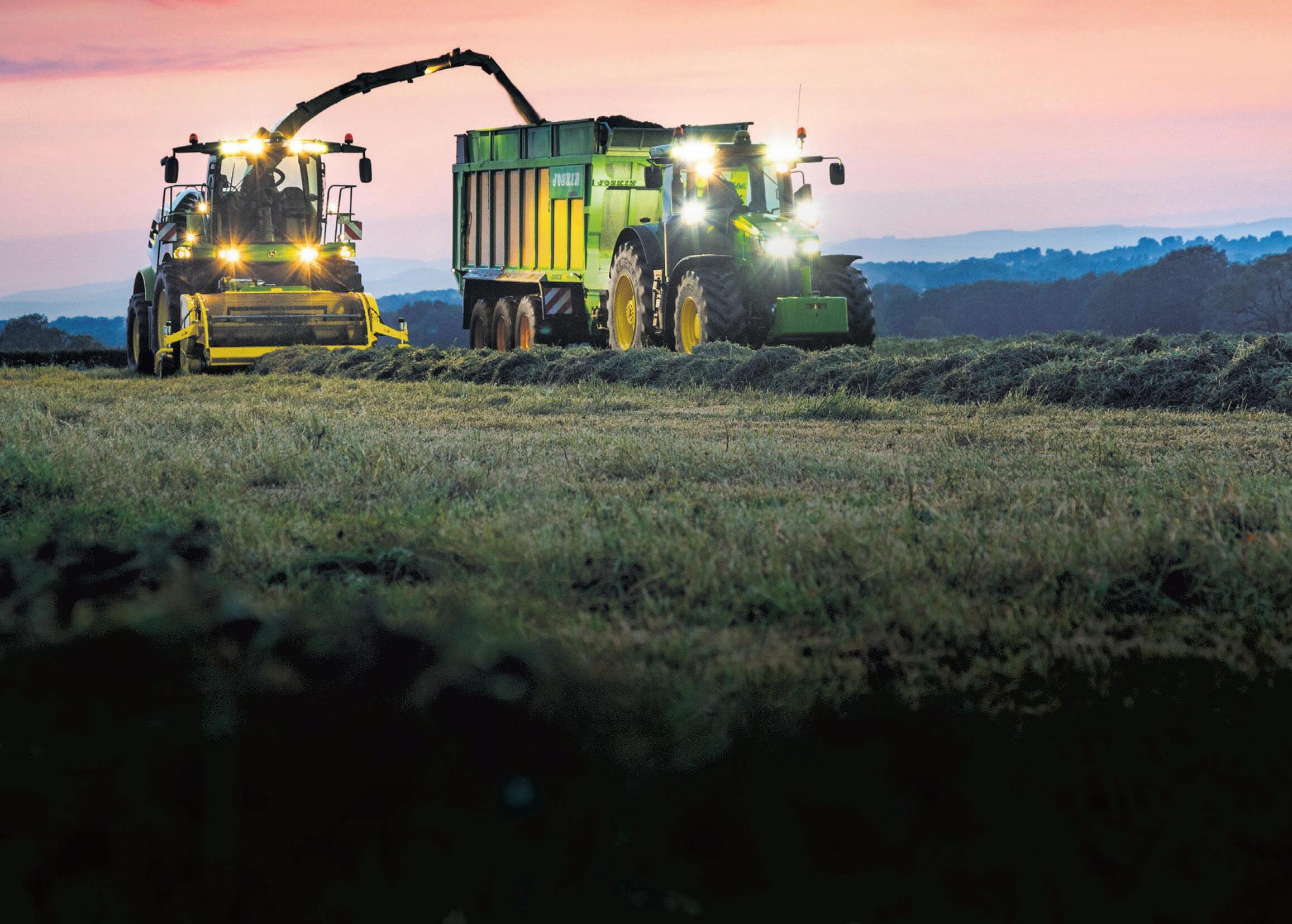
As we embrace the 2023 season, Brandt stands poised to be your unwavering support, catering to the Gippsland area’s farming needs through its strategic locations and an array of high-quality products and services.
With an unwavering commitment to customer satisfaction, Brandt has fine-tuned its approach by providing not only top-tier equipment but also adedicated team of highly trained in-field and parts technicians. Farming is around-the-clock endeavour, and the Brandt team understands that when the unexpected occurs, speed is of the essence.
That’swhy their technicians areavailable 24/7, standing readytoassist, ensuring that downtime is minimised, and your operations can resume promptly
The foundation of Brandt’sservice lies in its impressive inventoryofpre-season orders for renowned brands like John Deere, Kuhn, and Goweil.
The availability of parts is the backbone of
farmproductivity,and Brandt ensures that you have access to the critical components required to keep your machineryoperating seamlessly
This dedication extends to their John DeerePre-Season net wrap order,another testament to their proactive approach in catering to their customers’ specific needs.
This expansive range caters to the diverse needs of modernfarmers, equipping them with the tools required for efficient and effective operations.
Some highlights from Brandt’s new season stockinclude:
John DeereR310R &R350R MoCo Range: These models, with working widths of 3.10m and 3.50m respectively,offer vertical fold for transport, gearbox-driven heavy-duty flail or roller conditioners, and adaptive hydropneumatic suspension.
These innovations not only enhance productivity but also underscoreJohn Deere’scommitment to cutting-edge farming technology
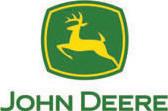
further enhancing the capabilities of modern farmers.
The optional Rotor Suspension Kit, Spare Wheel, High Flotation Tyres, and upgraded undercarriages emphasize the focus on customisable solutions.
Goweil G5020 Round Bale Wrapper: Austrian Manufacturer Goweil’sreputation for rugged and dependable equipment is underscored by the G50 series of bale wrappers.
However,it’snot just about maintaining the status quo.

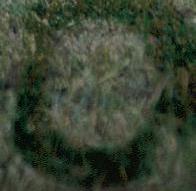










Brandt’scommitment to innovation is evident in their offerings of cutting-edge machineryfor the new season.
The Pakenham, Leongatha, and Maffra branches areteeming with an impressive line-up, including John DeereRound Balers, Baler Wrapper Combinations, Front and Rear MoCos, Kuhn Mowers, Tedders, Rakes, Goweil Bale Wrappers and Soft Hands.
Kuhn GA7631 &GA8131 RotaryRakes: Kuhn’s31seriesrotaryrakes, available in 7.60m and 8.10m sizes, reflecta commitment to meeting varying needs. These models offer aheavier-duty option,
With features like an offset axle for stability, larger flotation tires, and the ability to wrap bales up to 4’10”, Goweil empowers farmers to manage their forage with confidence. With afirmdedication toproviding comprehensive solutions, Brandt invites you to visit their local locations and discover how they can redefine your farming experience.
The 2023 season is ripe with opportunities and challenges, and Brandt is your steadfast partner in navigating both. From parts and technical supporttoa line-upofcutting-edge machinery, Brandt is committed tomaking your farming journey smoother,moreefficient, and ultimately more rewarding.
Experience the Brandt difference today Contact your local branch on 1800 237 887 or visitbrandt.ca/au.
Biogone, leaders in plastic technology in Australia, aredelivering Australia’sfirst innovative eco-smartsilage wrapping for the farming industry, usingbiodegradable plastic which addresses the increasing issue of disposable plastic products in landfill.
Biogone’slandfill-biodegradable silage stretch film and hay net features a proprietaryadditive to make the plastic biodegrade away in landfill, without compromising their recyclability When the silage wrap and nets are disposed of to landfill, they will decompose up to 90 percent faster than traditional plastics, which generally take hundreds of years to break down.
According to Biogone founder,Dr. Ross Headifen, the company is committed to designing and manufacturing durable, eco-smartfarming plastic products that won’tlasteonsusing Biogone’slandfillbiodegradable plastic.
“Biogone is determined to strip away the complexities around plastic waste and provide logical solutions that arebased around promoting biodegradable landfill,” Dr Headifen says.
“On average, the Australian farming industryuses amammoth 8,000 tonnes of farmplastics per year,suchasdairy silage wraps and covers, which end up as waste. These arestaggering national figures that
show farmers arerecycling less and less everyyear.
It is fundamental that Australian farmers aresupported to transition away from the current plastic situation.
Agricultural plastic waste continues to accelerate, and agrowing number of challenges exist around inconsistencies with local councils and landfills not being able to accept agricultural plastic waste. However,weare seeing anumber of landfills in Gippsland that accept silage wraps and we encourage farmers to dispose of these plastics the right way Ideally,tohave afully responsible
operation, therewould be an alliance between famers and their local councils to have acollection arrangement set up wherefarmers storetheir plastic waste or drop it at alocal depot.
From there, the plastic would be picked up by local government agents for recycling if such facilities existed or disposed to the landfill whereitcould biodegrade away Biogone silage wrap and hay nets are UV resistant and do not fragment to microplastics.
“Our landfill-biodegradable plastic has a no shelf life issues, and when disposed of to alandfillwith natural micro-organisms
present, then, unlike aconventional plastic that will last for hundreds of years or more, this biodegradable plastic could be digested away in 10 to 15 or so years” Dr Headifen adds.


“When Biogone plastic is disposed of to alandfill, which is amicrobe rich environment, the additive in the plastic attracts the naturally occurring microorganisms to the plastic, who begin to eat away at it and digest it and secrete enzymes, which further breakdown the plastic molecules, leaving anatural organic matter (humus) fertiliser
This process is slower compared to a banana peel biodegrading in alandfill, as the biodegradability of the plastic depends on the level of microbial activity in the landfill, the material thickness as well as the temperatureand moisturelevel in the landfill.
Eventually all plastic will need to be disposed of, as, unlike metal, the molecular structureofaplastic is damaged with everyrecycle.
“Biogone landfill-biodegradable plastics arelike an insurance policy,ifthey can’t be recycled, they can be disposed of to alandfill and will biodegrade at an accelerated rate, so they won’tbeleft for futuregenerations to deal with” Dr Headifen adds.
To learnmoreabout Biogone’srange of plastic products, visit www.biogone.com.au









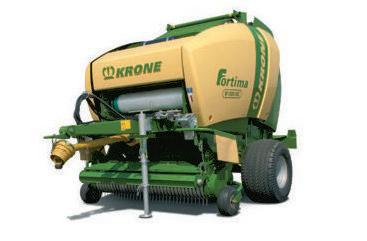
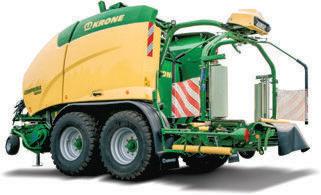
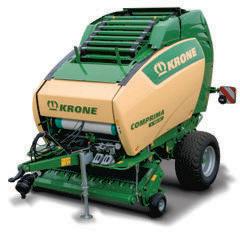




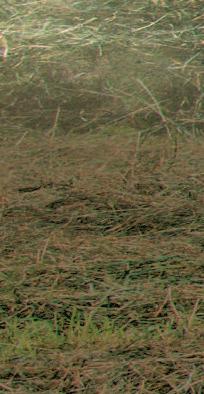




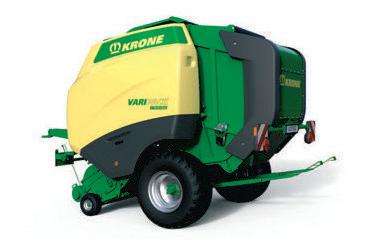


DAIRYAustralia’sinnovative Silage Plastic Recycling TrialinWesternVictoria has been successfully completed. The lessons learned arenow being used to work with private industrytodevelop along-term solution for responsible disposal of plastic on farms.





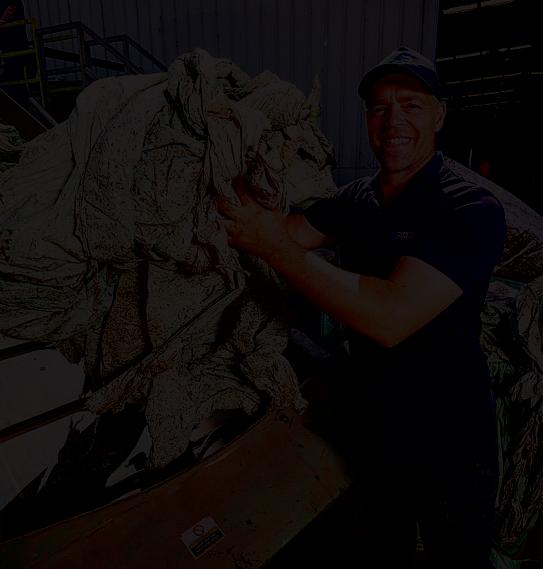
The objective of the silage recycling project was to develop apractical and cost- effective solution for managing farmplastics, and dairysilage wraps and covers.



The project, which was supported by the Commonwealth’sNational Product Stewardship Investment Fund, ran for over two years. It started with desk-top studies and investigations into international best-practice prior to moving into apilot trial in WesternVictoria.
Following an expression of interest process, close to 160 farms volunteered to participate in the trial, with 90 farms chosen to take part.
The pilot trial began in April 2022 and by the time it was successfully completed in March 2023, 64 tonnes of silage plastic -equivalent to around 50,000 silage bales worth of plastic -werecollected and recycled. This plastic waste, which would otherwise have gone into landfill, was then processed into material that could be used to make arange of recycled plastic products.
The trial tested three different on-farm plastic storage methods and farmers wereoffered the option of apaidon-farm collection service or free drop offatone of five local waste transfer sites. It was
supported by Corangamite Shire, Moyne Shireand Colac-Otway ShireCouncils, which allowed the project to make use of waste transfer stations for farmers to drop offtheir plastic.
Ultimately,the project allowed Dairy Australia to identify apreferred farm plastic collection and transportation model. This has been tested by farmers, meets the requirements of recyclers and is competitive with existing practices.
DairyAustralia’sProgram Manager for Manufacturing Innovation and Sustainability,Ian Olmstead, said that the trial in WesternVictoria had been positively received by the farmers involved.
“Thereisoverwhelming supportfor the continuation of asilage plastic collection


























and recycling scheme for the region,” said Olmstead.

“The project team worked closely with key stakeholders including plastic suppliers, plastics re-processors, dairyand cattle farmers, and other successful product stewardship schemes to ensurethat the systems developed remain practical for farmers and commercially realisticfor all involved.”










As aresult of this project, Ian said DairyAustralia is currently working with commercial company Plasback, which will seek to build on the silage plastic collection service offered to date in Western Victoria. Plasback operates asuccessful collection service of plastic wastes for rural communities in New Zealand.
“Plasback will take the lessons learned
from the DairyAustralia trial -aswell as what has been learned from their own experience previously operating asilage plastic recycling scheme hereand in New Zealand -tooffer Australian farmers a sustainable service for plastic disposal,” Olmstead said.

Details of Plasback’seventual service offering arecurrently being finalised. It is anticipated that collection and recycling services will initially be offered in Victoria, beforeexpanding to other regions nationally depending on demand and availability of suitable local collection and recycling infrastructure.
For more information, visit dairyaustralia. com.au/land-water-and-climate/ environmental-programs/silage-plasticrecycling-scheme#.ZG7zBX1BwuV


Saleyard auction -Livestock aretransported to central saleyards and sold to the highest bidder Prices reflectsupply and demand in the market on the day
Auctions offer immediate sale with all stock types and lots of any size accepted.
Paddocksales -Livestock areinspected on the vendor’s property by abuyer or agent and sold from the paddock. Buyers prefer large numbers and an assessment in weight and fat scorerange is an advantage in price negotiations.
Over the hooks (OTH) -




















Livestock aredelivered directly to the abattoir with change of ownership taking place at the abattoir scales.

Termsofsale varybetween abattoirs.

OTH allows lambs to be sold at the optimum time in terms of market readinessand pasture use efficiency
Livestock must be accurately assessed for sale to avoid price penalties.
Forwardprice contracts -A contractual agreement between aseller and buyer to supply a given product at afuturepoint in time for agiven price.
In some cases the price is fixed, thereby reducing the producer’sexposuretoafallin market price.










Producers can manage contracts to sell lambs at optimum times in terms of market readiness and pasture use efficiency
Agent online auction-An electronic online auction for the sale of livestock by description.


Combines the best features of the saleyardsystem and allows direct consignment to the abattoir or buyer

Producers retain full control of livestock and areassured of market value or better when protected by the reserve price set.
Ivadene Poll Dorsets
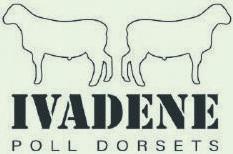

annual Elite Ram Sale in Benalla on Tuesday3October
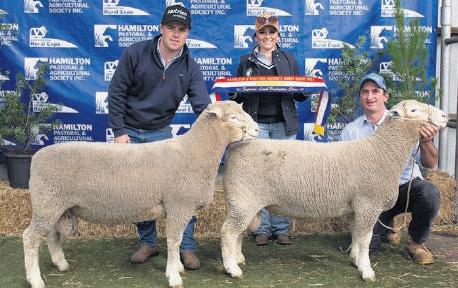
On offer,aselect group of stud sireprospects, approximately 100 Poll Dorset flock rams and for the first time approximately 10 Charollais Xflock rams.

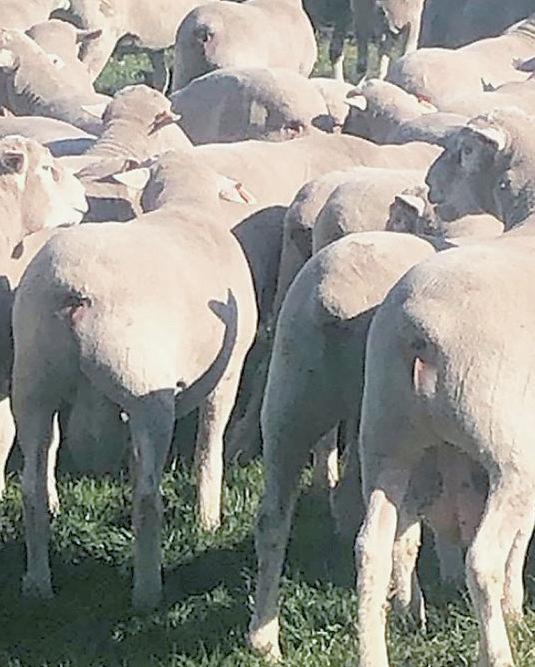
The stud ram section features Ivadene 31/22 –the number one ranked 2022 drop Poll Dorset ram in Australia for LAMBPLAN TCP index.
As well as Ivadene 75/22 & 159/22 –the Supreme Interbreed LAMBPLAN Production Pair at the recent Hamilton Sheepvention, and several other outstanding prospects.
The flock rams offer the opportunity for prime lamb businesses to take their operation to the next level.

In amarket that is not valuing storelambs highly,quality terminal sires arecritical to producing premium trade or exportlambs,with marketing flexibility and reducing costly


shearing and supplementary feeding of out of season lambs.
These rams represent Ivadene’s key objectives of combining elite and balanced LAMBPLAN performance with structural correctness, Poll Dorset breed type and commercially relevant early maturity patternand market suitability

Stud Principal Lachie Kelly said, “Weproduce rams designed to provide the highest returnon investment for our clients and our customer service is second to none.
We’d love to see you at Benalla, please don’thesitate to get in touch with any queries, for more information or acatalogue.”




Want to get sheep on your farmorsmall holding but don’tknowwhat sheep to get or wheretostart?
Thinking of getting or moving to an easy-caresheep with no shearing but want to make surethey hold up well in awetter environment?
WiltshireHorns arethe answer!

The WiltshireHornbreed is ahardy British, self-shedding wool breed so they need minimal intervention and no shearing. As asingle purpose meat breed Wiltshire Hornmeatoffersyou and your customers a great eating experience with afine texture, subtle taste and tenderness regardless of age!
This versatile breed is ideal for microfarms, lifestyle farms or those wanting to capitalise on the paddock to plate market and sell meat direct to consumers.


Hallston Valley Farmdemonstrates how sheep can work veryeffectively and be commercial on small holdings in Gippsland.
The owners of Hallston Valley Farm, Jill Noble and GaryTie started small and purchased quality breeding genetics from all across Australia.
Today the diverse agribusiness and regenerative-based farmishometo one of the biggest flocks of registered and commercial WiltshireHornsheep in Victoria.
Jill and Garyhave astrong education focus helping to mentor and supportthose new to sheep breeding or those wanting to take
their sheep enterprise to the next level. They offer hands-on practice, education and an after sales service wherethey will help you with regular animal husbandrylike vaccinations.
Sign up at www.hallstonvalleyfarm.com to be kept updated on their 2024 education days including farmskills refresh, market your farmand buildyour farmprograms and events.
Hallston Valley Farmalso offers farmaudits to help you know wheretostart with your farminfrastructureand projects.


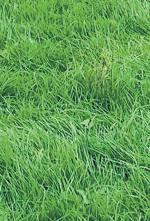
Get in touch to arrange one for your farm!
Jill also runs the internationally acclaimed Sheep Show Podcast which is available to
download for free from the Hallston Valley Farmwebsite, at www.hallstonvalleyfarm. com.








Jill produces asheep magazine called ‘The Muster’ which is published through The Australian Stud Sheep Breeders Association and is on the sheep committee for the Melbourne Royal Show So what do their customerssay?
“Wemet Jill and GaryfromHallston Valley farmin2017.
We saw these beautiful WiltshireHorn sheep that shed their wool and do well in the wet and living in Poowong, we thought these arethe sheep we need!
Jill and Garyshowed us the ropes with
vaccines and drenches and showed us their farmwhich gave us lots of ideas. Whenever Ihave questions IringJill, no question is too stupid.


Since then we have established a commercial sheep enterprise and now run our own sheep stud Frog Hollow Farm. Jill even talked me into showing my sheep at the Victorian Sheep Show in Ballarat we came home with the champion Wiltshire HornRam.
Without Jill’shelpthat would never have happened, Iamhooked!


Jane and Pat Reeves, Poowong Jill and Garyhavebeennothing short of amazing for us beginning our sheep journey
From the veryfirst phone call to the ewes giving birth they have only been aphone call away to assist us with all our questions. Ihighlyrecommend Hallston Valley Farmto anyone wanting to begin their shepherding journey
Youwill be fully supported and your confidence will be beaming beforeyou know it!
Jody and Shannon from Narracan Hallston Valley Farmwill hold their annual WiltshireHornram and ewe sale on Monday November 6at1pm. Stock will be available for viewing and inspection from 11am.
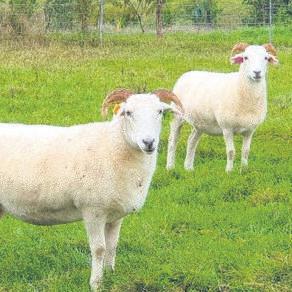
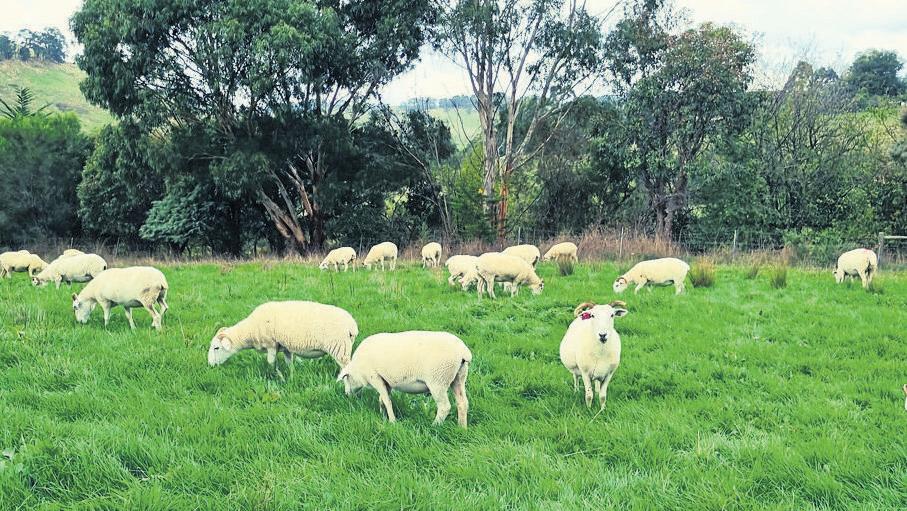
Head to www.hallstonvalleyfarm.com or follow Hallston Valley on Instagram, YouTube and Facebook for details.

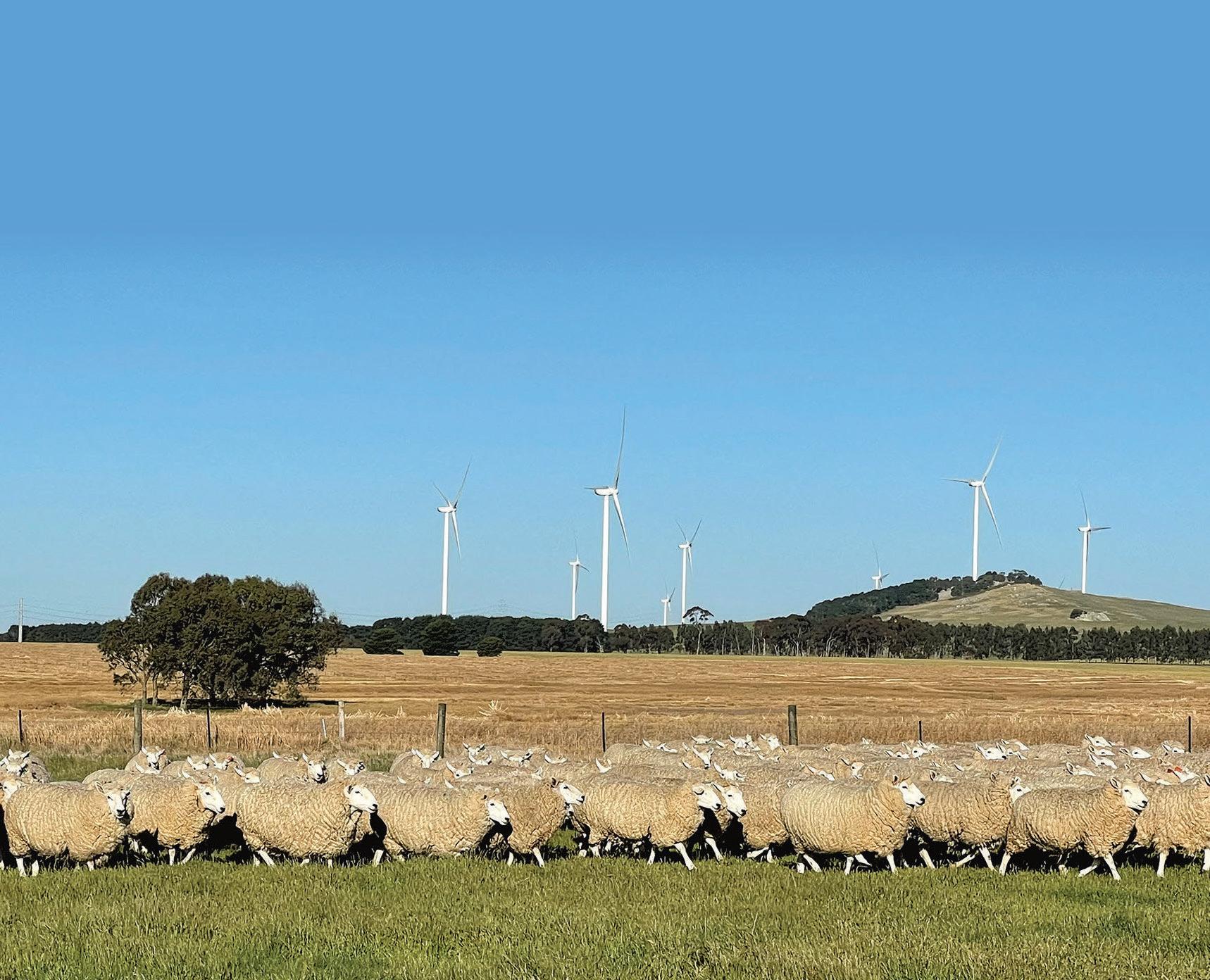








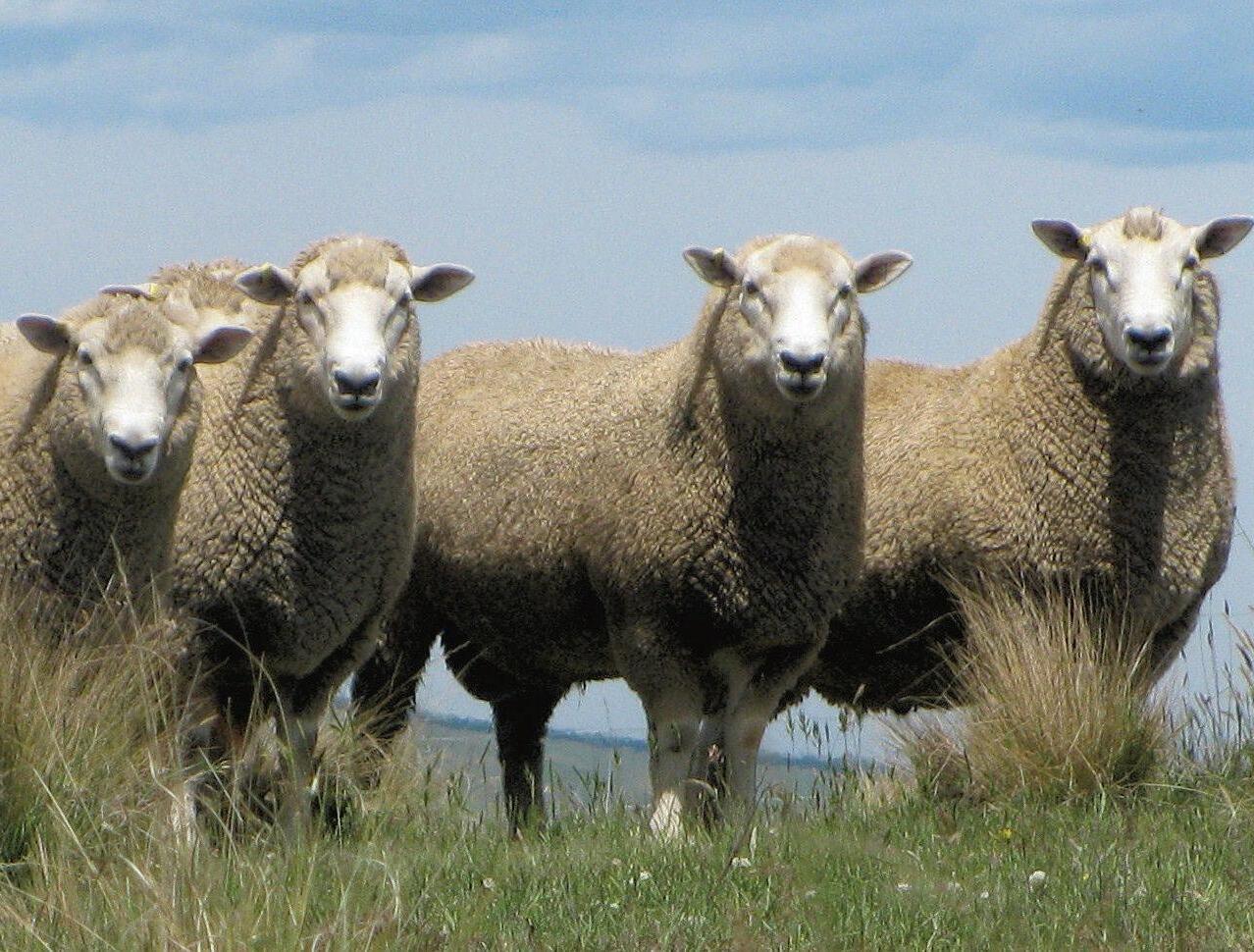
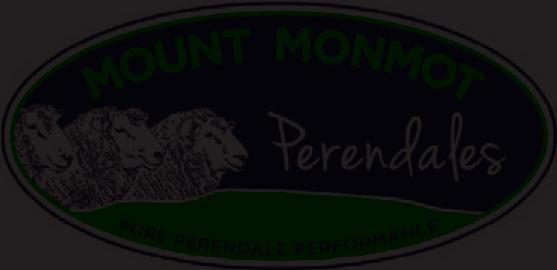

Asustained and balanced focus on shear force, intramuscular fat, muscle, weaning and post weaning weights at one Victorian stud is paying dividends by meeting producer,processor and consumer specifications.
Fifth generation farmer Roger Trewick and his wife Dianne have been breeding Poll Dorsets under their prefix Pepperton since 1994 and wereearly adopters of LAMBPLAN performance recording, concentrating on growth, muscling, and moderate fat levels.
Always on the front foot with technology, the couple started artificially joining their entireewe flock in 1999 to maximise genetic gain.
Adding White Suffolks in 2004, Pepperton produces around 200 rams each year –those retained for sale must have aTerminal Carcase Production Index of over 155, areDNA tested for lamb eating quality,and aregrazed on dryland lucerne with minimal grain feeding during dry times.
Data is collected by seven months of age on all rams, and they consistently test high for muscling and growth with moderate fat and lower birthweights.
Thereisa high incidence of twinning in the stud ewes with 150 percent weaning the norm.
Pepperton will offer 50 Poll Dorset and 50 White Suffolk top indexing 2022 drop rams on-property at ElmoreonOctober 18 at 1pm, interfaced with AuctionsPlus.
In the past Pepperton has topped at $12,500 with studs including Rowallan, Mallee Park, Newbold, Woolumbool and Kentish Downs operating at the top end of the rams.
The couple’s283ha farmhas been in the Trewick family since 1864 and runs 450 registered Poll Dorset and White Suffolk ewes with dual purpose wheat and grazing oats, and lupin or vetch crops under sown with dryland lucerne.
Aseparate 72ha block has irrigated pasturefor the ewes and their April drop lambs.
Soils areregularly tested with lime applied at 2.5 tonnes per hectareand the summer active lucerne and sub clover-based pastures aretop dressed to ensure optimum productivity for the sheep.
The stud is located in a450-500mm rainfall zone with redloamover clay soils.
The stud has asplit joining with AI programs in November and March for an April and August lambing to spread the workload moreevenly across the year
“Weare getting verygoodresults with our AI because we have our ewes in agood body condition scoreofatleast 3to4 prior to lambing –the ewelambs must be over 50kg liveweight at joining at 10 months of age,” Roger said.
“Recently we naturally joined ram lambs to 100 ewe lambs in containment pens with a 91 percent conception rate.”
The maiden ewes areclassed by Roger on LAMBPLAN figures and constitution, with weights and body condition scores taken pre-joining.
Dianne carefully matches each ewe to an individual sireincomplementarymatings. Continued selection for positive fat and eye muscle depth at Pepperton resulted in the highest muscled Poll Dorset ram in Australia, Pepperton P180339, for the 2018 drop with aASBV of +6.5mm for eye muscle depth.
Roger classes the young rams on
conformation and is pedantic about feet and leg structure.
“Rams of both breeds in our flock have similar attributes and could be joined to Merino ewes without much difference. We keep aclose eye on birthweight and shear force,” he said.
Using genomics to take the guess work out of breeding, DNA tests arecarried out for parentage, lamb eating quality,leanmeat yield, and intramuscular fat.
“When the industrywas moving towards leaner carcases, we did not go down that track as we had alot of Merino clients and they don’trequirea ram negative for fat,” Dianne said.
“Weconcentrated mainly on muscle, red meat yield and moderate fat so many of the young rams have positive fat in both breeds.
This is coupled with amoderate birthweight.
“Weuse AI sires that aretrait leaders for shear force as the consumer is demanding tenderness in their lamb.
We areachieving good ASBVs in our rams for IMF,shear forceand dressing percentage.”
Pepperton is amemberofMeatElite Australia, an Australia wide group of progressive Poll Dorset breeders with the aim to deliver over 20 percent faster genetic improvement than the average for terminal siregroups.

Members have access to Meat Elite sire team rams DNA tested for shear force, IMF lean meat yield and dressing percentage.
Members generally select for low to moderate birthweights, they collect weaning and post weaning weights from consistent management groups, scan all progeny for eye muscle and fat score depth, and undertake individual sheep wormresistance testing.

For the past two years Pepperton has sold mixed sex lambs over the hook to Gundagai Meat Processors after engaging with the company at aMeatElite Conference.
DNA data obtained from the carcases is submitted to the genetic evaluation service Sheep Genetics.


Lambs arescanned at 200 days of age
and any lambs with aTerminal Carcase
Production index of less than 155 aresold over the hooks.
This year’sconsignment averaged 27kg
hot standardcarcase weight with abonus paid for above average intramuscular fat.
“When the wool market is subdued, Merino producers will once again swing over to meat sheep rams for terminal lamb production,” Dianne said.
“They particularly like the White Suffolks for their clean points and lambing ease,” she said.

“Our rams aresoldinto both dryand wetter regions so their feet and legs need to be spot on.”
Roger said many of the White Suffolk ewes werecoming through with barebellies and reduced wool on the necks of the rams.
All ewes arepregnancy scanned into singles, twins, triplets and dries with a target of 150 percent weaned lambs in both breeds.
To optimise lamb survival, ewes aredrift lambed in paddocks with windbreaks, foxes arecontrolled, and post-birth the lambs aretagged and weighed.
Lambs areweaned at 14 weeks of age, are weighed and vaccinated, and grazed on clean pasture.
As the next generation to take the reins, Roger and Dianne’sson Kurtis and daughter-in-law Tara areaiming to broaden the client base.
“I want to continue with commercially focused, well-balanced sheep with carcase quality and fertility,” Tara said.
Wednesday 18th Octoberat1pm
Auctioneers: RayWhite Livestock&Elders interfacingwithAuctionsPlus Rams availablefor inspection by appointment on Saturday7th andSaturday14thOctober
Roger &Dianne Trewick,PeppertonFarm 304Elmore-Minto Road, Elmore.Vic Mob: 0428 326190

WHILE the Diamonds secured their 12th netball World Cup last month, Carly Johnstone achieved her own feat in the North Gippsland Football-Netball League.
Johnstone played her 300th game for Rosedale Football-Netball Club last Saturday in theBlues’ Round17 clash against Cowwarr,becoming one of just six Rosedalenetballers to reach the milestone.
“It was an amazingfeeling,”Johnstone said.
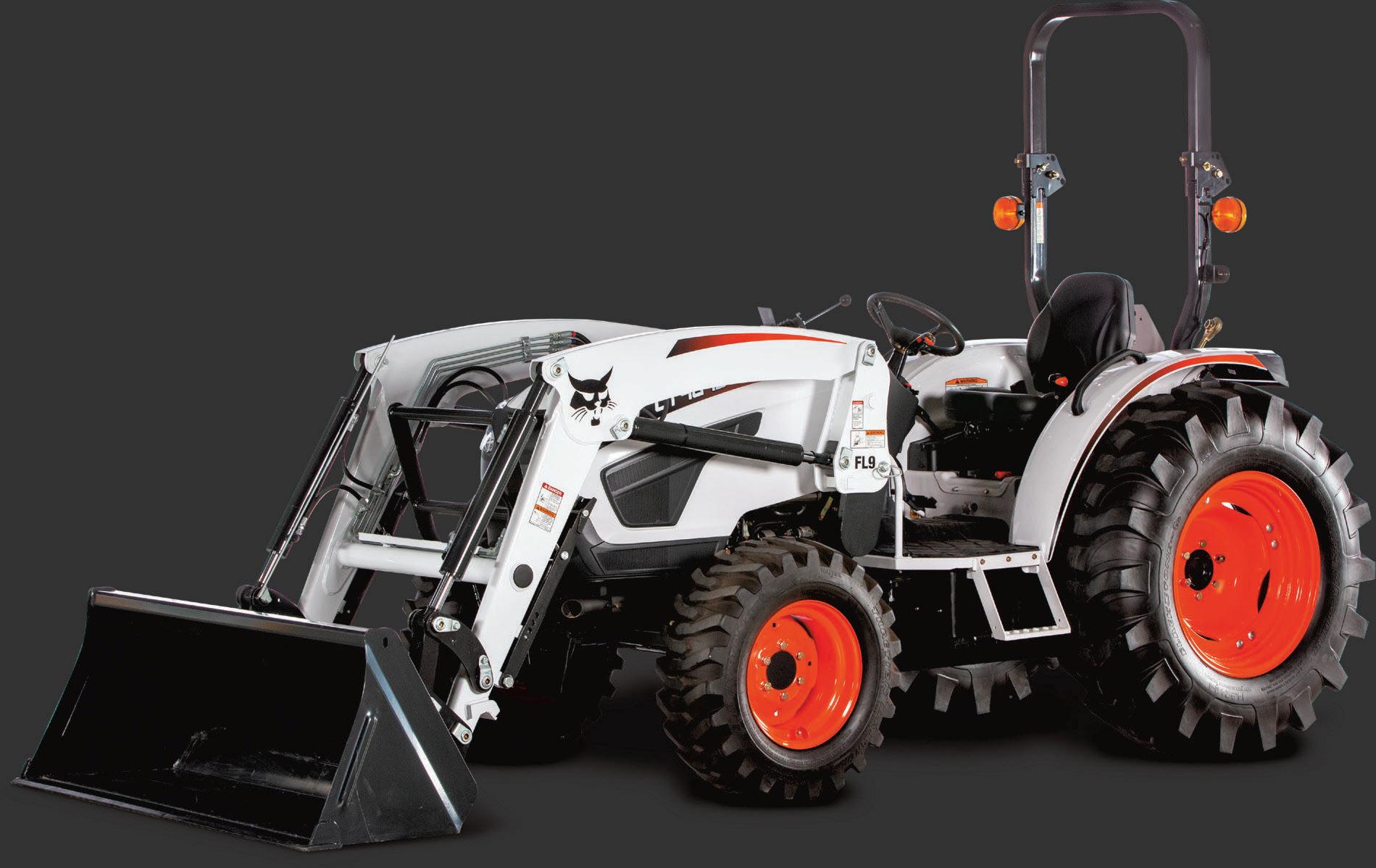

“A bit surreal, to be honest; I’ve been there (at Rosedale FNC) for such along time, and Iknew the game was coming up, but for it to actually be that day was pretty special.
“I had alot of support thereaswell, lots of family and friendswho came and watched; it was lovely.”
Rosedale FNC described Johnstone as a loyal, dedicated, selfless, pivotal player who continually challenges herself, strives for excellence and exhibits the finest professionalismonthe court while serving as an exceptional role model for the younger players.
“Carly is aselfless player who places her team first beforepersonal accolades,” the club wrote.

Johnstone has earned myriad accolades throughout her 19-year netball career with Rosedale FNC.
The six-time premiershipplayerhas been named Rosedale’s AGrade Best and Fairest four times and has featured in the NGFNL’s Team of the Year on five occasions.

While so much hashappened throughout her nearly two decades at Rosedale FNC, making it near impossible to narrow down the tophighlights of her career,Johnstone considers the 2011 and 2015 premierships as high points.
“My very first premiership in 2011, Ijust
remember havingthis feeling of being so excited to play in aGrand Final,” Johnstone said.
“I remember beingatworkand talking about it, andnoone really understood, and I’m like ‘this is abig deal’. We worked so hardfor those years from 2005 to 2011, and to actually get that spot in the Grand Final, that was pretty special.


“My sister also won aBGrade premiership
thatyear, so we got to celebrate that together,which was awesome.”
The Blues sealed double premierships in 2015, aspecial moment for Johnstone, who lifted Rosedale’s fifth AGrade netball flag alongside her husband, who raisedthe Blues’ ninth senior football premiership flag.
“In 2015, my husband was in the senior premiership side for Rosedale as well,” Johnstone said.
“So theA Gradewon, and the seniors won, which was pretty special.”
Playing alongside her now-longtime friend Lorell Lowe has also been ahighlight of Johnstone’s netball career
“Lorell Lowe, she is one of my best friends; she’s been our captain in AGrade for as long as Ican remember,and she is just so passionate and so driven,” Johnstone said.
“Weare so similar on so many levels, we justknowwhatwewant andits like we lookat eachotheronthe courtand we know what to do, we’ve played together for so long. Idon’t think Iwould have reached 300 games without her

Johnstone has become adevoted club membersince joining the Bluesin2004, always willing to devote hertimeand help whereneeded,takingonthe role of DGrade coach in 2008 and2009and CGrade coach for the last four seasons.
“You just help whereyou can,” she said.

“There’s often not alot of people who put their hand up for that coaching role because it is abig commitment, and Iam just one of those people who will put their hand up and say, ‘Yeah, I’ll do it’ because I love this club, it’s like afamily at Rosedale.”


While Johnstone has given so much of her time and energy to the club over the years, it hasn’t been without return.
Johnstonemet herhusband, Scott, through RosedaleFNC,the twobecame fastfriends when she joined theclub in 2004, and by the end of the season, they weredating.
The couple will celebrate 19 years together later this year
Carly and Scott Johnstone became the firstRosedale FNC couple to reach the 300-game milestone, with Scott playing his 300th game for Rosedale in late 2022.
HEYFIELDFootball-Netball Club loyal servant Sarah Schellencelebrated an impressive milestone recently.
Schellen became the first Heyfield netballer to play 300 senior club games when she ranout for the Round 13 clash against Glengarry.

Whether you believe in destiny or not, Schellen was fated for anetball career with the Kangaroos,being the daughterof a Heyfield footy player
From ayoung age, Schellen joined local footballersand netballers inthe winter Saturday ritual, rising early on cold, often wet mornings and donning club colours beforemaking the journeytowherever the weekend’sgame was located.
Schellen played her entirejunior netball career for Heyfield and continued representing the Kangaroos on the court as she entered her senior career
“I moved to WA for acouple of years, and Ihad aseason over thereina town called Busselton, but other than that, Ihave only ever played at Heyfield,” Schellen said.
“I coached an AGrade team at Maffra a couple of years ago -I didn’t play, Ijust coached-but other than that, Ihave always been at Heyfield.

“When you start playing at 10 years old, and you’ve got family connections -like, my dad played most of his football career at Heyfield and is alife member as well -growing up in that community environment, the club becomes part of your family.
“Yourwinter familyisthe Heyfield Football-Netball Club,and it’s apretty good family to be involved with, Ithink.
“Heyfield is one of those places that is just acommunity, and you look after each other “It’s like afamily; itisyourfamily.Ithink
having my dad play there, my sister Emma, she’s also alife member at Heyfield, she’s playedall ofher netball there, so to play with your sister,mydaughter Jasmin, I was lucky enough to play some AGrade netball with her as well, it is my family.”
While the 47-year-old centrehas accumulated numerous accolades throughout the years, including becomingthe first Heyfield player to win the North Gippsland AGrade netballbest-and-fairestaward in 2015, Schellen’s three premiership titles and playing AGrade with her daughterhave been the highlights of her career

“Biggest highlight is obviously playing A Grade with my daughter Jasmine and also playing three premierships alongside my sister Emma,” Schellen said.
“I’m pretty lucky; not manypeople can say they’vewon three premierships with their sister,and not many people can say they’ve played AGrade netball with their daughter
“I know this probably sounds alittle bit daggy, but when you’reonthe court, and you’replaying,and you hear someone say, ‘Mum pass me the ball,’ it’s pretty funny, it’s abit of afunny highlight.”
Schellen has won three AGrade premierships playing alongsideher sister:1999, 2010 and 2013.
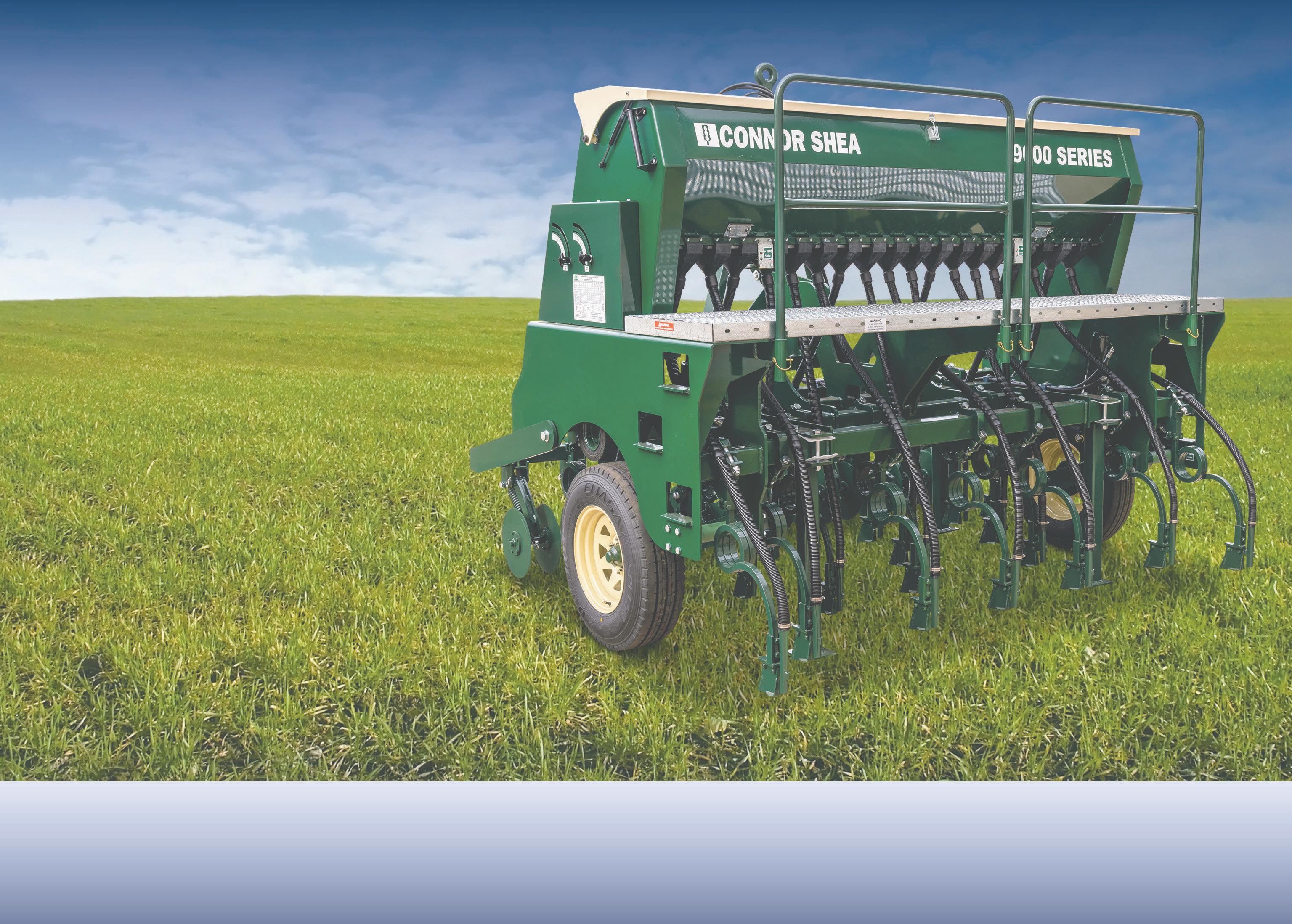
Schellen’s300th alsocoincided witha 10-year reunion of the 2013 premiership.
DespiteSchellen suffering aloss in her milestone game, with Glengarry’s BGrade defeating Heyfield 52 to 30, with so much
to celebrate,therewas little room to dwell on the defeat.
As the Heyfield netball veteranreminisced on her career,she said she was grateful for the opportunity to facefierceopposition in theNGFNL AGrade competitionover the years.
“I have played with and against quite afew fiercelycompetitive players,”Schellen said.
“Therehave been quite afew players Ihave enjoyed having atussle with overthe years.”
Among the many met throughouther nearly five-decade-long career,itisJoan Foat and Maureen Kelly, who’ve left alasting impression on Schellen.
“Joan Foat was oneofmycoaches when I was still an AGrade player,” Schellen said.
“She just simplified my gameand has been areally big inspiration.
“I just remember her words all the time, ‘Sarah, as acentreplayer,all you have to do is hoverand dash’. Those words just stick in my mind.
“Someone else who has been influential is Maureen Kelly.
“Maureen is another life member at Heyfield; she’s done alot of coaching; she’s just been involved in alot of things throughout my time at Heyfield.
“She’s someone who everyone looked up to; she was always there, she was always there coaching, she was always umpiring, she was always helping out, canteen, everything.”
For someonewho loves playing netball as much as Schellen does, and someone wholoves their club as much as Schellen does, it’s no surprise the Heyfield FNC life member is the first netballer to reach the 300-game milestone.
While Schellen admits reaching 400 games is “a bit out of reach”, she’s now aiming for 350 games, suggesting the netball veteran has no intentions of ending her illustrious Heyfield FNC netball career,anytime soon.













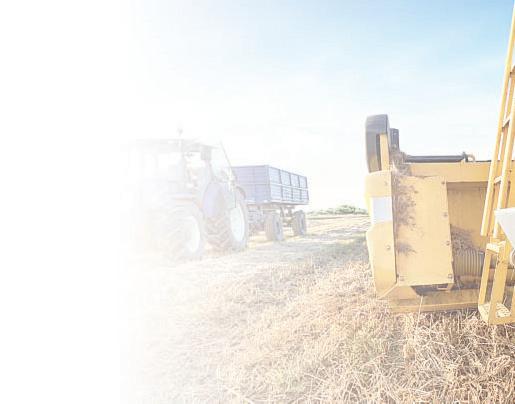






















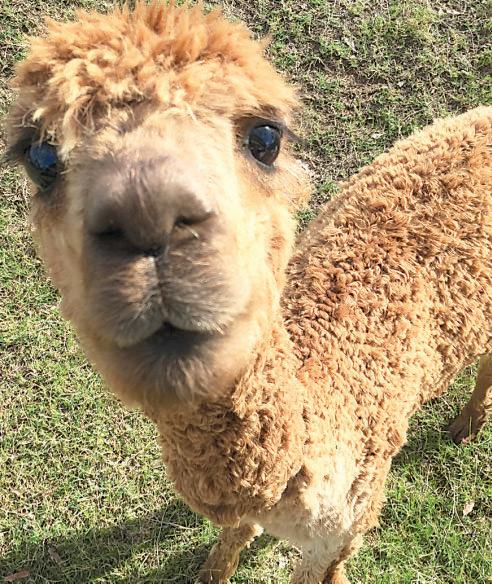



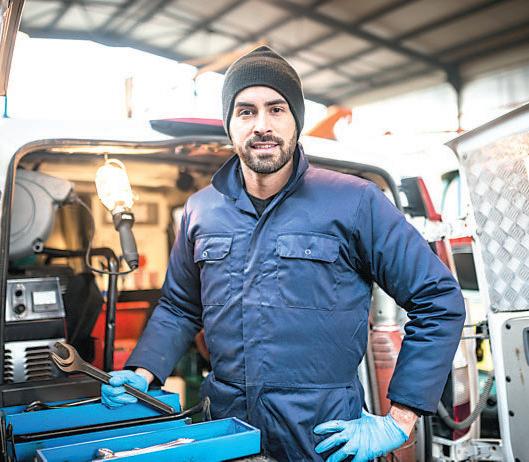





















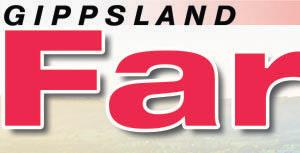
























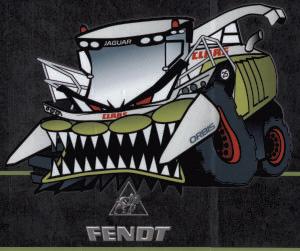













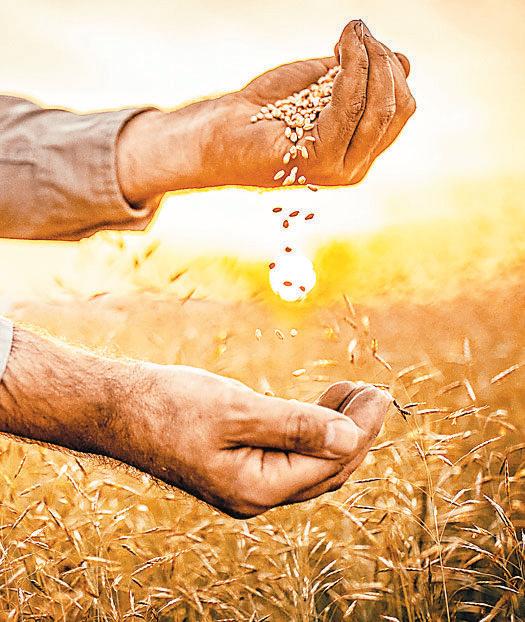


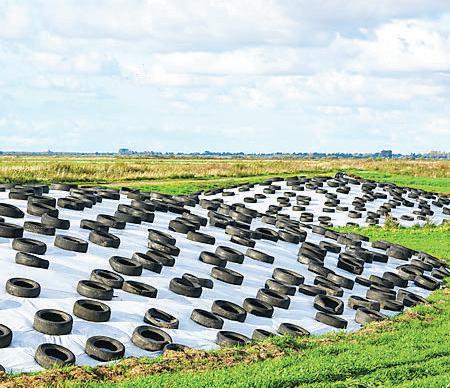

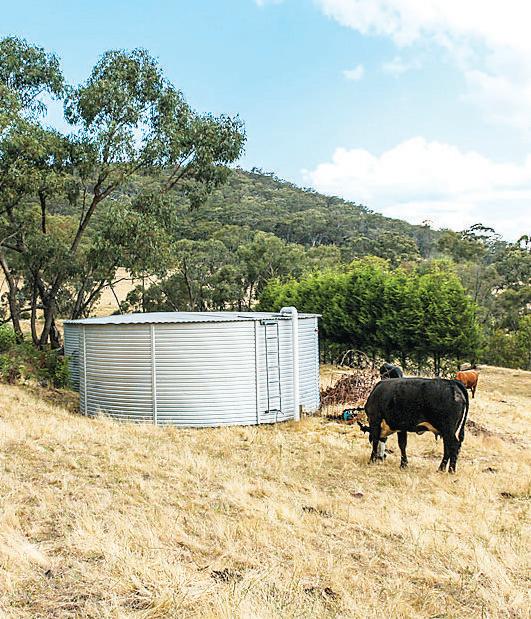






Liam DURKIN
THE VictorianCountry CricketLeague Region 7Team of the Year was announced recently.
Selected under VCCL criteria, male players from the six Gippslandcricketassociations making up Region 7are recognised annually for their performances during last summer
For the first time, awomen’s team was also selected this year
Theseteamsare purely a‘Gippsland’ team, with the absolute top performers then chosenfor the VCCL Team of theYear to compete in national championships.
Somewhat unfortunately, the only way to select these teams is to go purely off individual statistics in batting, bowling,
GORMANDALECricket Club is full steam ahead for the upcoming season.
The club has made great gains both on and offthe field during the winter break.
In an uncertain time for how cricket will look across the Latrobe Valley, the club,not letting outside distractions affect them and strongly focusing on themselves, is incredibly pleased to have already made some real key signings ahead of what they hope is a successfulseason across three senior grades and juniors as well.
Newly elected president Brendan Peavey has stated the club had a choice to either adapt or potentially die afterthe Gormandale Cricket Clubwerestaunchintheiropinion of wanting to continue to build on their stronghistory in the Traralgon District Cricket Association.
“With change comes opportunity and although ourpreference was to remain with the TDCA we arelooking forward to contributing to the new merged competition,” he said.
“Through hardwork at aclub level we arecertainly experiencing high interest through clubnumbersand people looking to get back to playing cricket for our club.
“Wehavea new club captain in Matthew Hibbs, who is fast becoming one of the best players in the Latrobe Valley, and we have recruited strongly in all gradesaswellwithour early training sessionsproving popular particularly with the younger top-end talent which has been very pleasing.
“There’s definitely afeelingofpositivity and optimism around our club.”
Peavey acknowledged the contributionofhis predecessor,Gavin Foenander,who he replaced after more than 20 years as president of the club. “I would like to acknowledgeprevious administrations and administrators,in particular Gavin Foenander who has given the Gormandale Cricket Club and the Traralgon and District Cricket Association over 20 years of dedication and outstanding service,”Peaveysaid.
“Wecan’t thank him enough for the work hehas done in ensuring leadership and guidance during both successful and tough periods at our club.
“Last year,wehad three members of our club heavilyinvolved on the TDCA Executive last season, with Gav being one of them, so to have Gav and the othersnow beingable to focus their attention on our club behind the scenes is only going to make the place better.”
and for wicketkeepers, number of catching/ stumpings.


Nevertheless,selectioninthe Region7 team of the year in agreat honour,with those statistical efforts pigeon-holing players into certain categories.
Elsewhere, at the recentGippsland Cricket Region 7annual meeting, Heyfield legend Graeme Anderson and Leongatha cricket great GeoffWyatt wereinducted as life members of the region.
Both have been familiar faces in local
cricket circles for many years, with Anderson giving great service to the SaleMaffra Cricket Association and Wyatt the Leongatha District Cricket Association.
Anderson once quippedhow he still played cricket the day he was married, and made the trip to Country Week the day his son, Australian comedian Wil, was born.
George Munroaccepted another termas president of the region, but declared this, his 13th, would be his last season.
Kristen Webber was elected secretary,
while Bundalaguah’s Neil Purdy will complete his seventh termastreasurer
Mitchell Clark (Leongatha)
Ethan Lamers (Leongatha)
Rohan Diamond (Rosedale-Kilmany)
John Keighran (Latrobe Valley)
Steve Spoljaric (Bundalaguah)
Madura Madusanka (Leongatha)
Coenie Nel (Sale)
Dylan Keyhoe (Latrobe Valley)
Ricky Tatnell (Bairnsdale)
Dylan Bolton (Boisdale-Briagolong)
Noah Hurley (Collegians)
Jack Tatterson (Stratford) *captain
Delwyn Ahern (Longford)
Sally Guthrie (Longford)
Megen Wrigglesworth (Bundalaguah)
*captain
Kirrily Bruce (Rosedale-Kilmany)
Tamara Hall (Collegians)
Susie Blines (Latrobe Valley)
Stacy Rockcliff (Latrobe Valley)
Grace Duffield (Sale)
Joanne Rainbow (Latrobe Valley)
MatildaBerns (Sale)
Abigail Davey (Latrobe Valley)
Corina Vogt (Bundalaguah)
YOU can never have too many harddecks. Community is at the heart of most things done in Trafalgar,and the latest partnership is no exception.
Trafalgar High School and the Trafalgar Cricket Club areworking together to see the high school’s oval brought back up to be used for Saturday cricket.

Trafalgar Cricket Club used the high school oval as asecond ground for many years, yet factors in recent times meant the ground became unplayable.
However,recent works have got the oval backup to playingstandard,and school principal Brett Pedlow, himself anoted cricketer,iskeen to see the space used for the benefit of all in the community.
Currently, thegrassed areahas ample space for morethan just one oval, at what is also the former site of Trafalgar Victory Soccer Club.
The soccer club moved to their current location at Trafalgar Recreation Reserve in the mid-2000s, and welcomed new multipurpose rooms last year
These roomsare reversible,and sit in-betweenthe current soccer pitches at TrafalgarRecreationReserveand the proposed ‘second oval’ on the other side. While the second oval is still to come, the partnership between the cricket club and high school will hopefully keep foot traffic offthe main Trafalgar oval, used by the football club and cricket club.
Summer is an especially hectic time at Trafalgar Rec,with cricketers training/
playing most nights, and footballersundertaking preseason,meaning one oval is used by as many as 10 teams during the week.
The partnership with Trafalgar High School will allowthe cricket club to reduce foot traffic, and also greatly help its junior cricketers, most of whom go to Trafalgar High School or neighbouring Trafalgar Primary School.
Thereis provision to upgrade practice netsatthe highschool, meaning junior cricketerscan walkstraightfromschool to training.
Theschool’scentral location in town also makes it easily accessible.
Truthfully, you could mount astrong case for moving the entireTrafalgarCricketClub to the high school.
Trafalgar High School hasplans to install apath connectinganexisting walkway from nearby Murray Street to the other side of the oval, thus creating the perimeter of a traditional oval.
The cricketclub will now look to facilitate further upgrades to makeit acollaborative project, most notably, moving the existing wicket further north away from school buildings.
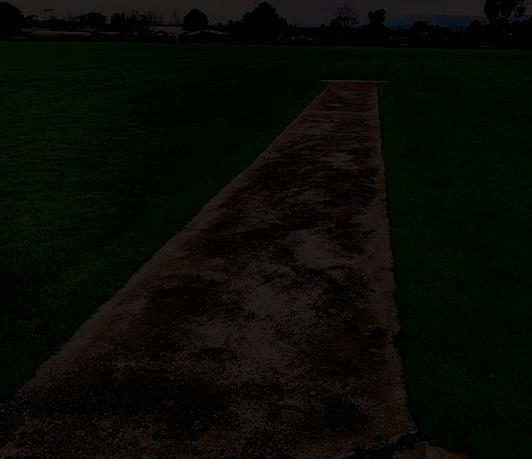
Looking at asatelliteimage,the facility holds similarity to what is seen at Catterick Crescent in Traralgon.
Coincidently, Trafalgar last played cricket at Trafalgar High School in 2009/10, in what was the Ships last season in the Warragul District Cricket Association. Trafalgar has moved back to the WDCA this season, completing whatcould be something of afull circle at the high school. Trafalgar High Schoolcould lay claim to being the most cricketing school in Gippsland.
Earlier this year,Traf High won the West Gippsland DivisionSenior Cricket Championship.
Rosedale Football-Netball Club’s Luke Stuckey was named Footy’s Favourite Farmer
FOOTY’SFavourite Farmer has been announced and awarded to Rosedale local Luke Stuckey.
Stuckey plays for the Blues in the North Gippsland Football-Netball League, winning the grand prize.
WorkSafe created the Footy’s Favourite Farmer competition, encouraging clubs to nominate alocal farmer Stuckeyruns around 750Angus breeders across sevenproperties, and has nowwon $10,000tobeput towards safetyimprovements for his business.
On top of that,the Rosedale FootballNetball Club will alsoreceive an additional $10,000 tospend onsafetyupgrades at the club.
“It’s amassive thrill to be Footy’s Favourite Farmer of the year,” Stuckey told The National Tribune.
“It’s not just me, it’s the whole club that got behind it -it’s ateam effort.
“The WorkSafe messageismassive, if you seeWorkSafe footies in yourkids’ handsor you just see the banner somewhereit just makesyou stop and thinkabout getting home at the end of the day to see your kids and family,” he added.
THE wheels areinmotion for MorwellEast’s proposed move to the North Gippsland Football-Netball League, following asuccessful vote from members.
On Monday,August 21 the club confirmed that their member vote,on Thursday,August 17, to change leagues from Mid GippslandtoNorth Gippsland was successful.
Needing at least 75 per cent of members to be on board, the vote had 90 per cent of people in favour
Morwell East conductedthe same vote at the end of the 2022 season, still needing 75 per cent in favour,only receiving 71 per cent in favour
Now everything is inthe hands of the NorthGippslandFNL,who will decideif Morwell East is to join the league for the 2024 season.
“We’ve notifiedMid Gippsland that we’reexploring options to move to North Gippsland, and we’ve notified North Gippsland that we see our long-termfuture in the North Gippsland Football-Netball League,” Morwell East FNC president Colin King said.

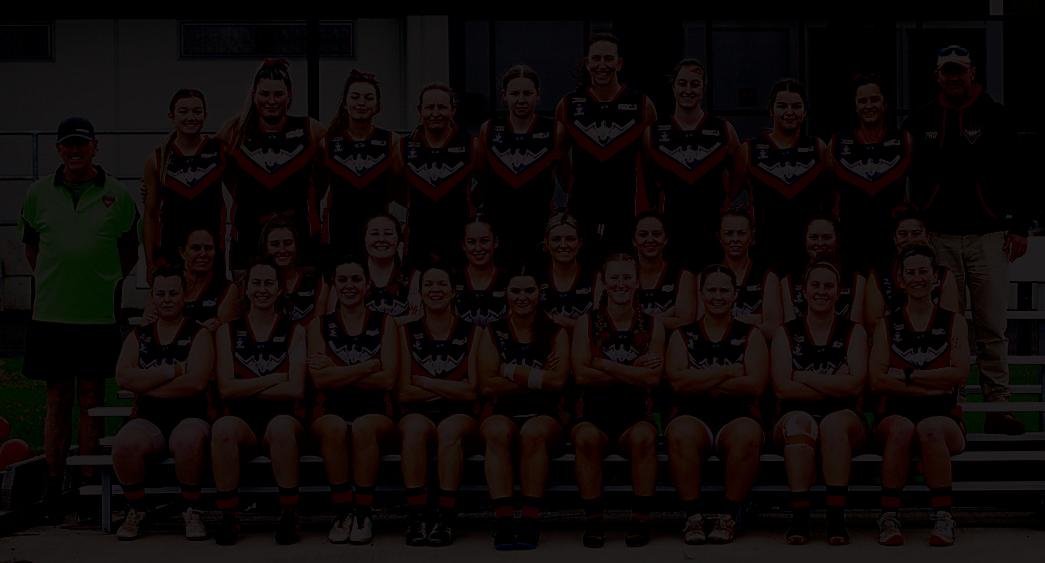
“We’rejust waiting to hearbackfrom North Gippsland in regardtowhat they’ll do next, so I’ll presume we’ll sit down and explain our case with all the executives and presidents of the existingclubs in North Gippy.”
King hopes that the decisionwill be clear sooner rather than later,to avoid uncertainty in the offseason.
Several factors,whichincludethe longevity of the football-netball club, where recognised when wanting to change leagues.
“There’s clubs that have got football teams in all grades, netball teams in all grades, umpires in all grades,itwould be apositive thing for us,” King said.
“Since the Alberton League clubs come in (to Mid Gippsland), geographically it has changed, and Ithink the most important
thing is,for thelong-termfuture of the club, is playing teams geographically close to you.
“So, we’d havefour games within 20 minutes;Churchill,Yallourn (Yallourn) North, TTU (Traralgon Tyers United) and Glengarry,ontop of your home games that’s 13 games within 20 minutes.


“The furthest trip used to be 30 minutes up to MirbooNorthinMid Gippy,and now there is three trips over an hour and three just under an hour,I think geographically it’s gonna be easiertorecruit players up and down the highway, rather than over the hills.”
The waythatthe Mid Gippsland FNL has changedhas shifted Morwell East’s thoughts on whereits futurestands.
One thing that potentially could face as anegative for Morwell Eastisthe factthat they didn’t field athirds side in 2023, but King hopes amovetothe North Gippsland FNL could help build development.
“Oneofour problems is, theclubs we compete with to get thirds teams, they’re all based in North Gippsland,” King said.
“In Mid Gippsland, through no one’s fault, there’s only six (thirds) teams,and the thirds might play at adifferent ground to their reserves and seniors,soit’s not abig sellingpoint whenyou’re trying to recruit.”
MorwellEastare open to seeingnew thirds players joining the club, andwith apotential movetothe North Gippsland FNL, thereisnobetterchancetodoso now consideringthe buzz around the club.
Seeing as last year’s vote to move to the NorthGippsland FNL was unsuccessful, thisoutcome isviewed as astepin the right direction.
“In the end, it’s areflection of what the members want, so obviously avast majority -90per cent -think it’s the right thing for the futureofthe club,” King said.
MorwellEastnow await wordfromthe North Gippsland FNL boardfor thenext steps in the process.
The Hawks played finals in the MGFNL seniors this season.
BOISDALE-BRIAGOLONG FootballNetball Club culminated astellar season last month, with the 2023 minor premier claiming the Female Football Gippsland Women’s premiership.
Havinglost just one game this season, dropping pointstoLindenow South in Round 10, the Bombersfinishedthe home-and-away seasonon top of the ladder with44points,14pointsclear of Lindenow South in second.
The Bombers had aconvincing win over the Swampies inthe Qualifying Final, defeating them 3.6 (24) to 2.1 (13) and earning aticketstraight to the Grand Final at TedSummerton Reserve, Moe. Boisdale-BriagolongFNC met Moe/ Newborough Allies for the title.
The Bombers kicked 1.1 (7) to 0.1 (1) in the first quarter to lead.
Moe/Newborough was unable to thwart the Bombers in the second quarter,with Boisdale-Briagolong kicking 2.2 (14) to lead 3.3 (21) to 0.1 (1) at halftime.
The Bomberscontinuedtodominate the game, kicking two goals in the third quarter to lead 5.3 (33) to 0.1 (1) as teams entered the final term.
Moe/Newborough failed to add to their score, while Boisdale-Briagolong kicked 1.3 (9) to win 6.5 (41) to 0.1 (1), securing yet another Female Football Gippsland Women’s senior premiership.
Boisdale-Briagolong’s ZanCherrywas awarded the WorkSafe AFL Victoria Country Best on Ground medal.
The Bombers also took out four of the fivetop spots in the Female Football Gippsland 2023 Best and Fairest. Boisdale-Briagolong’s Laura Johnston was the league’s clear best and fairest winner with 18 votes, while Madi Shingles and AmandaHancock were named equal-second alongside Lindenow South’s Siarra Peters on 11.
Cherry was equal fifth with Lindenow South’s Teleigha Saunders with eight votes.







